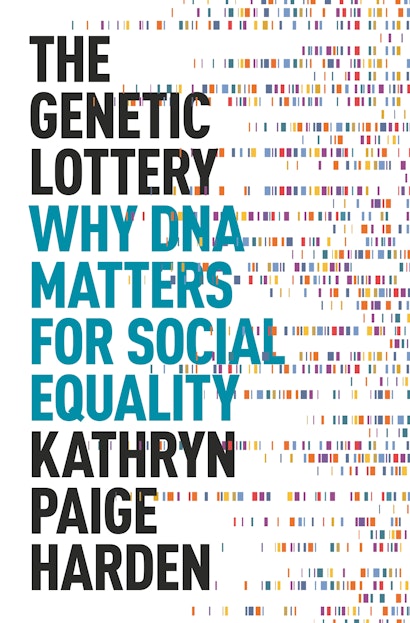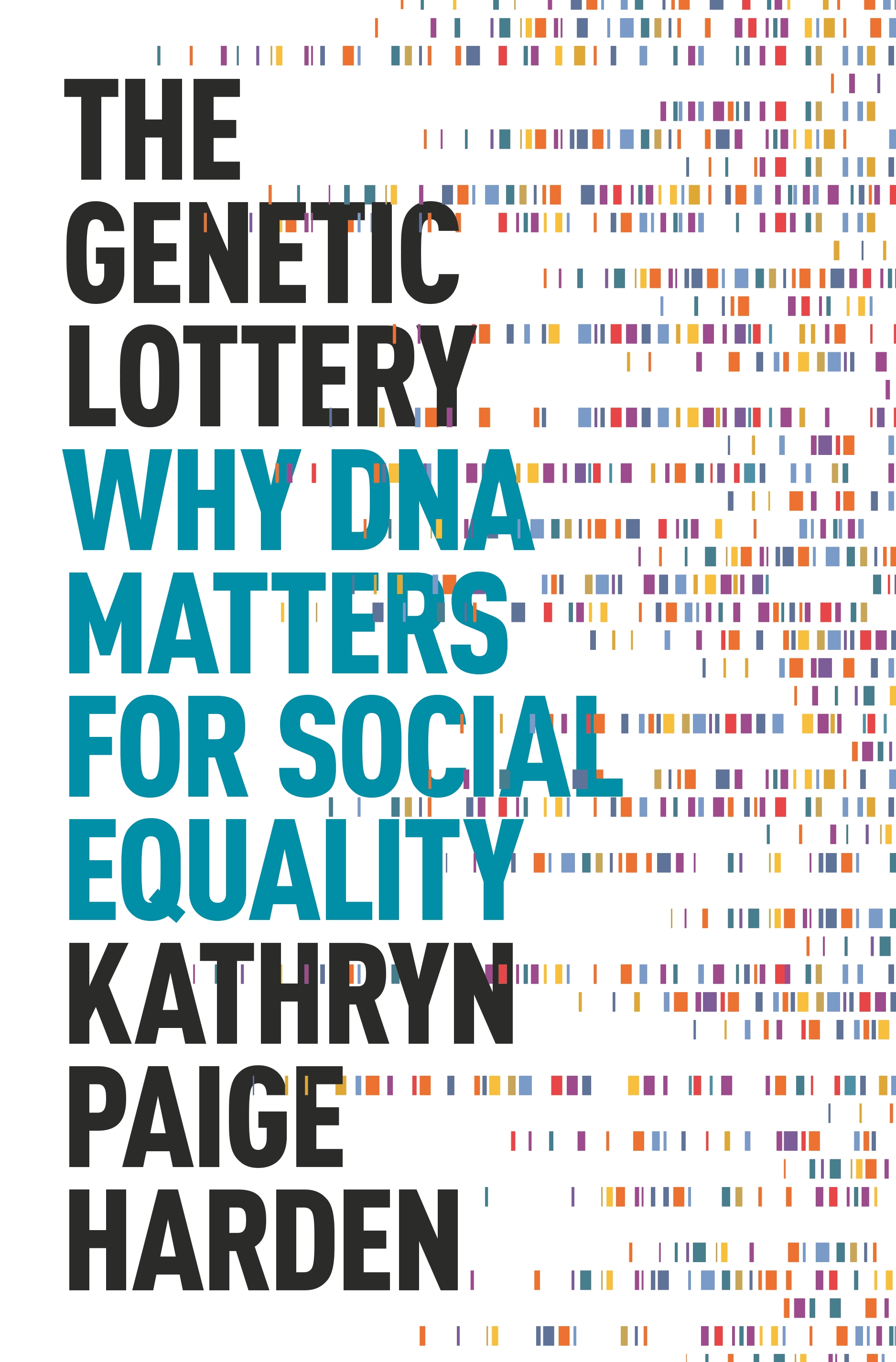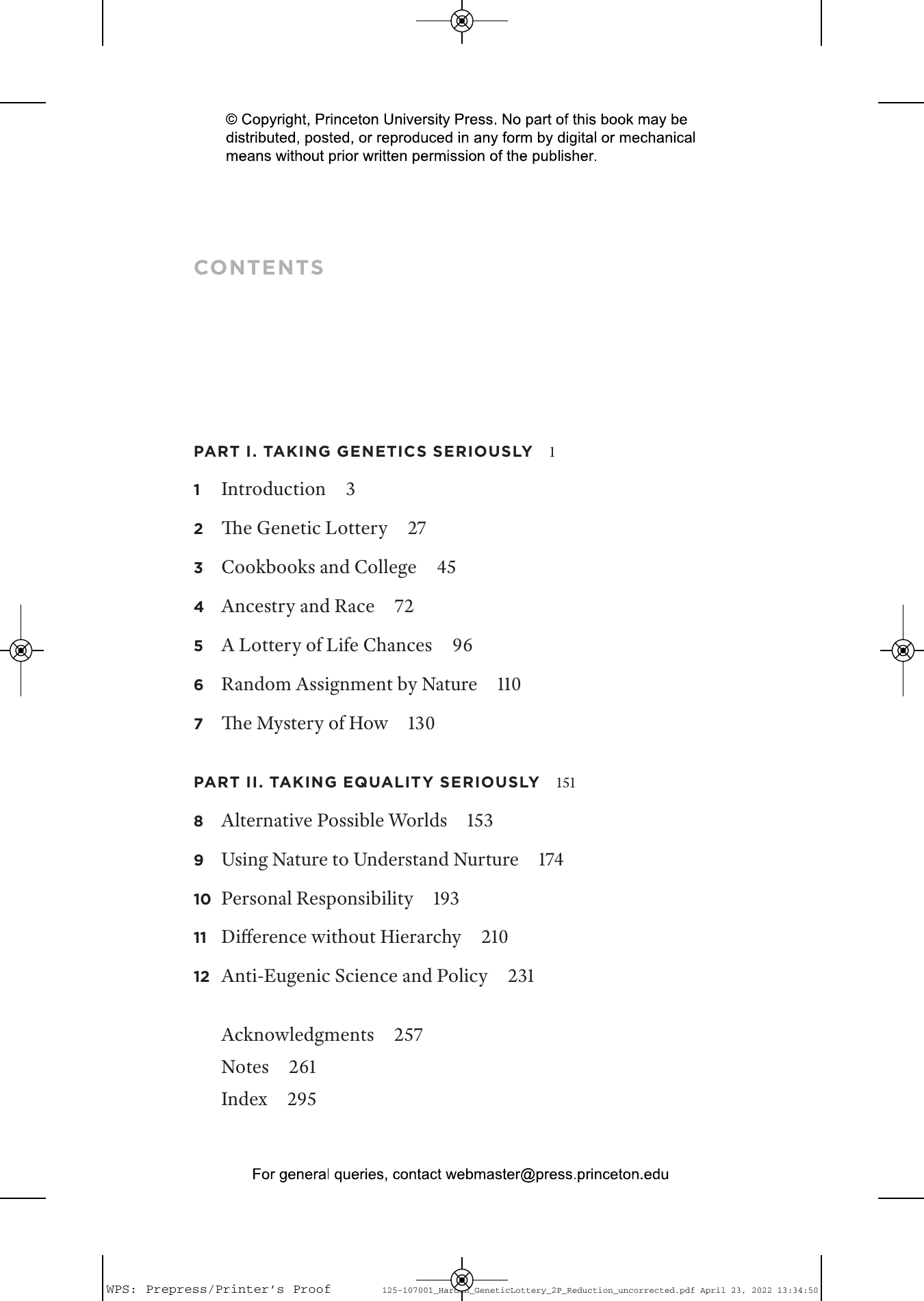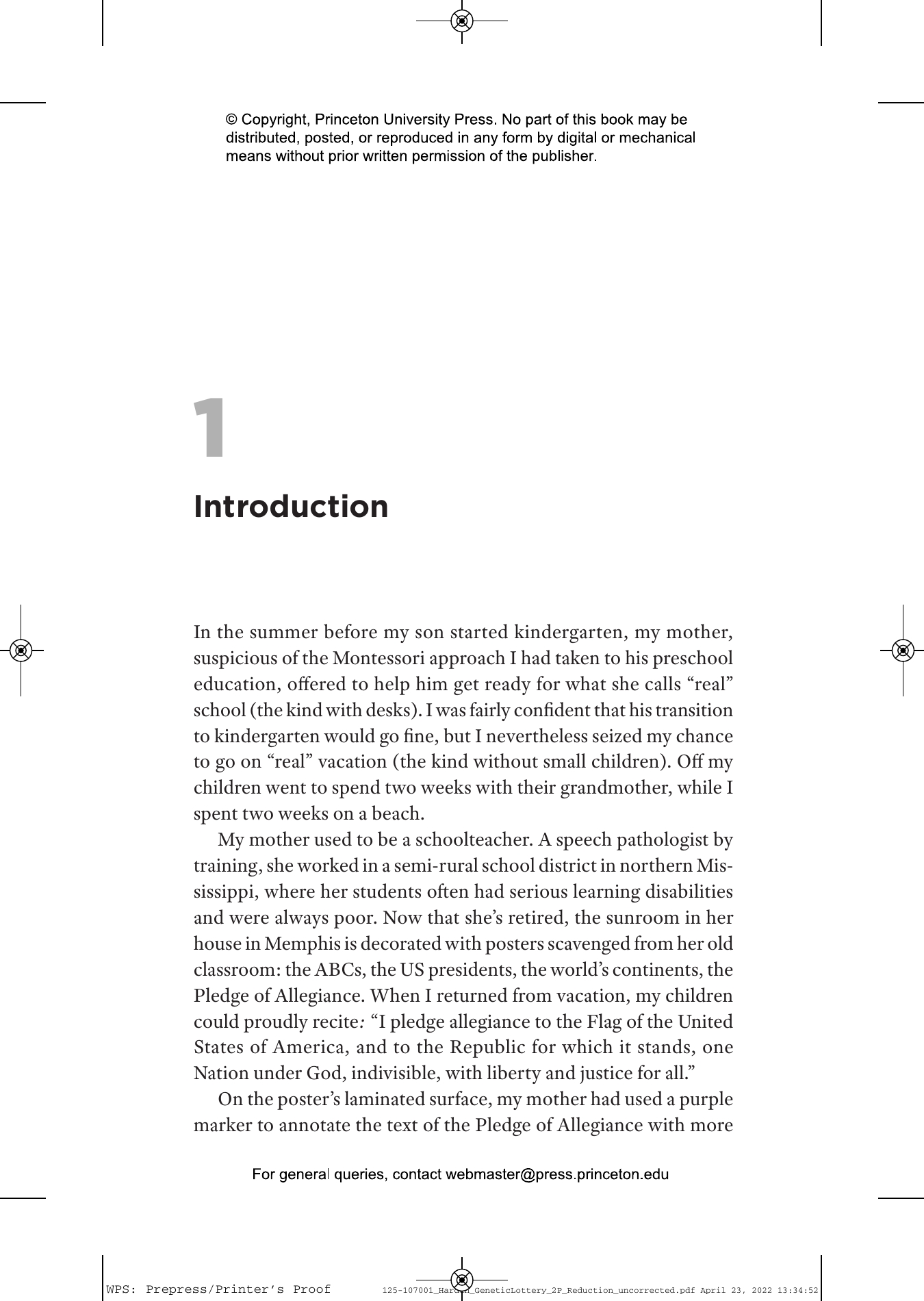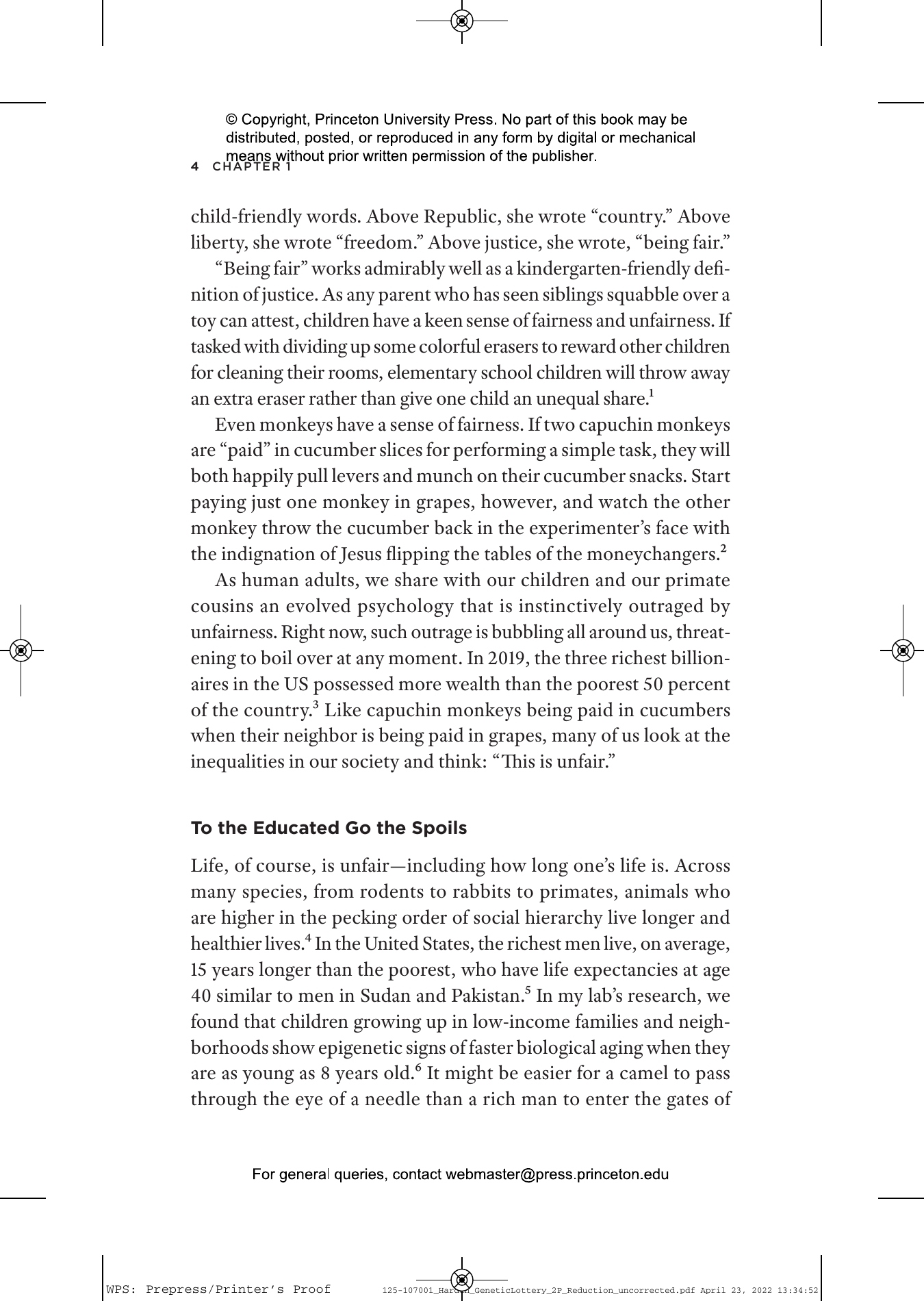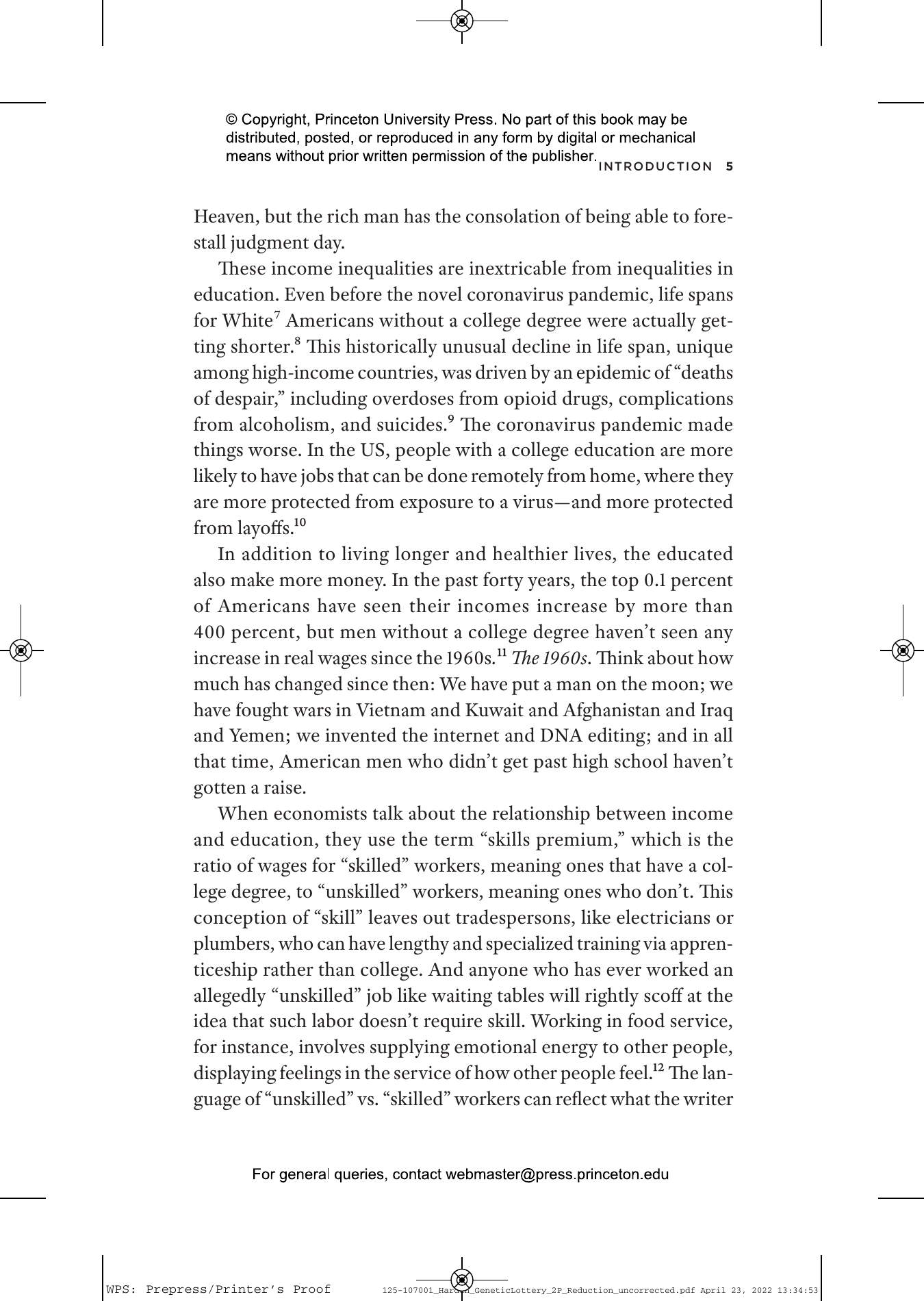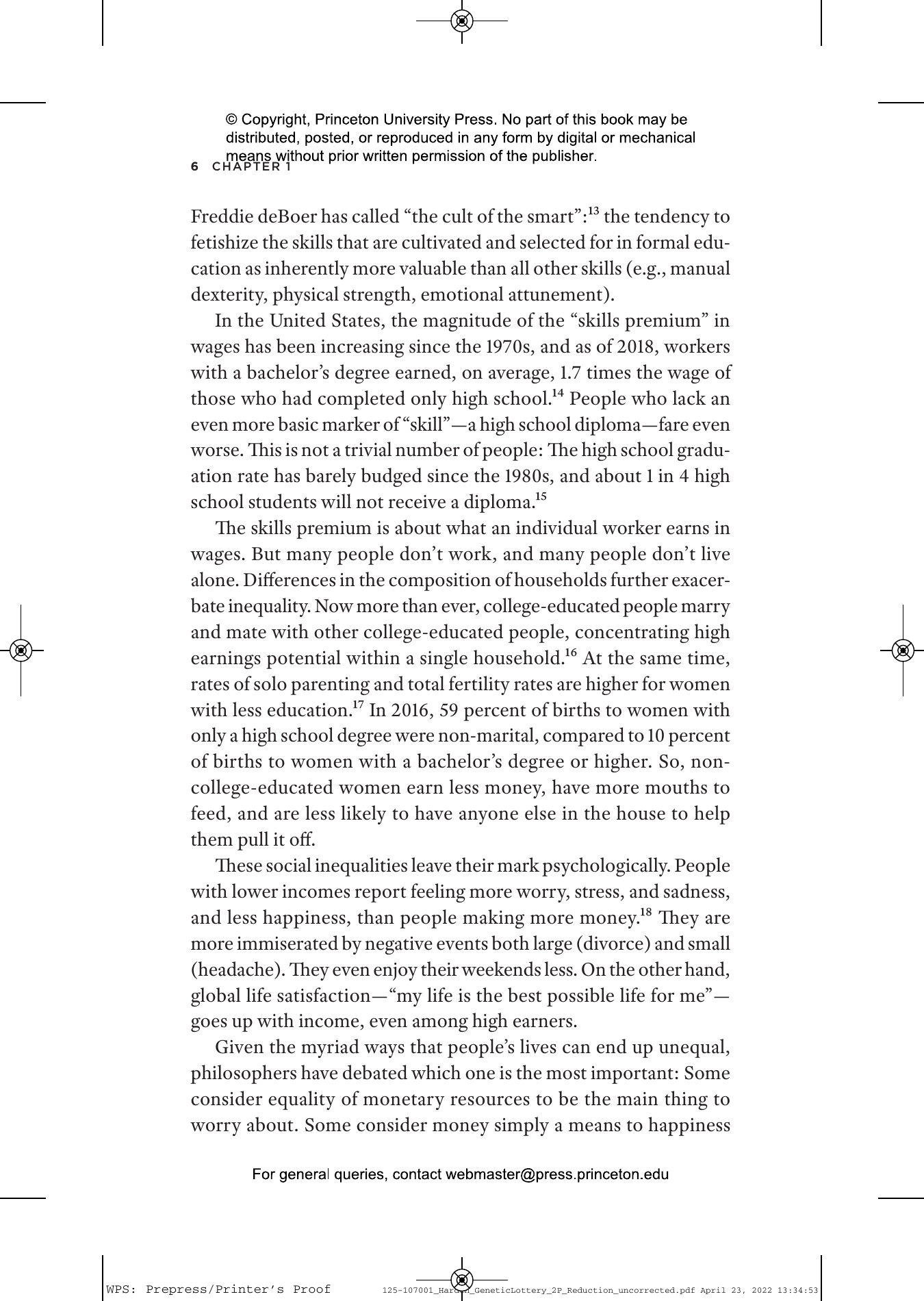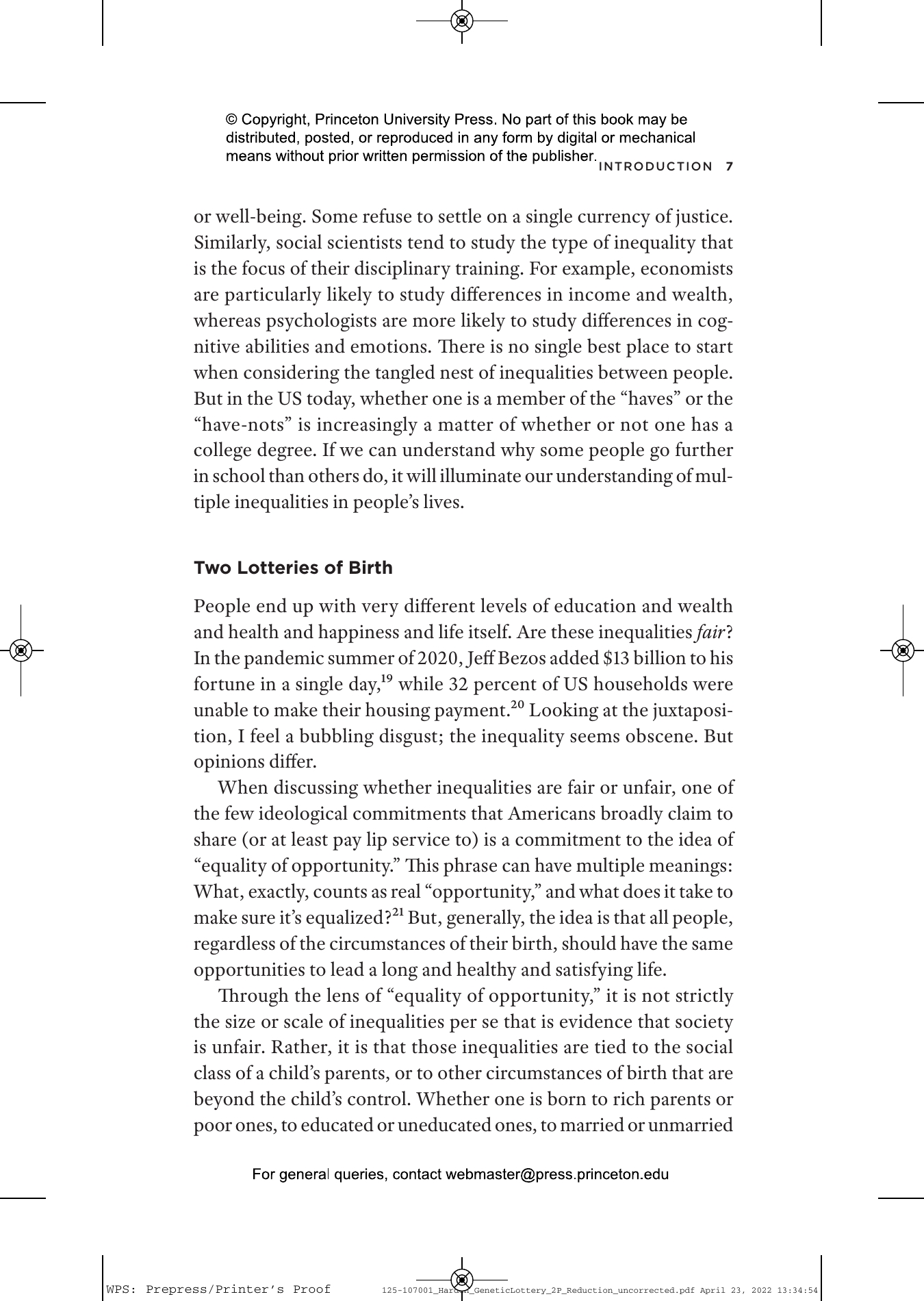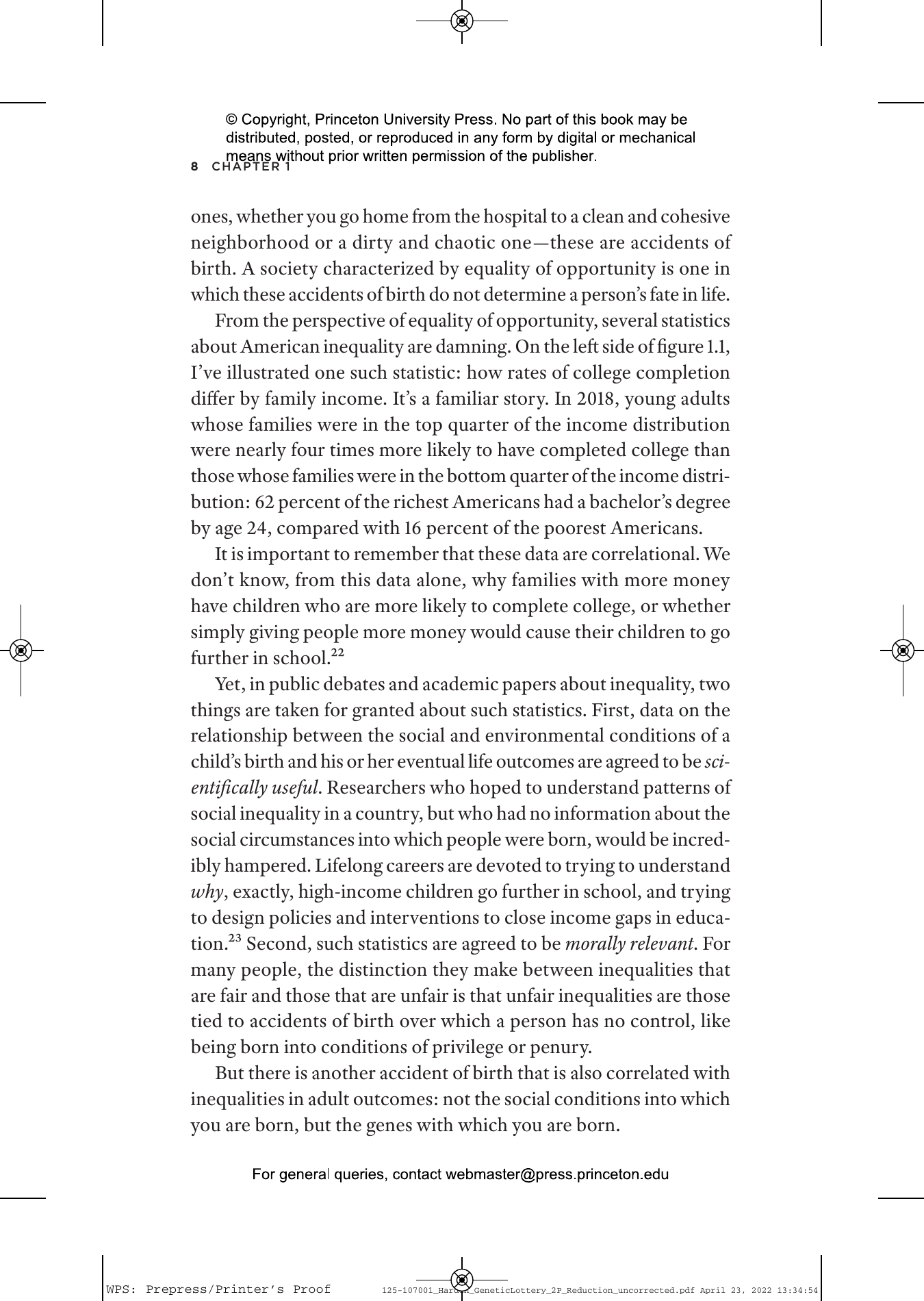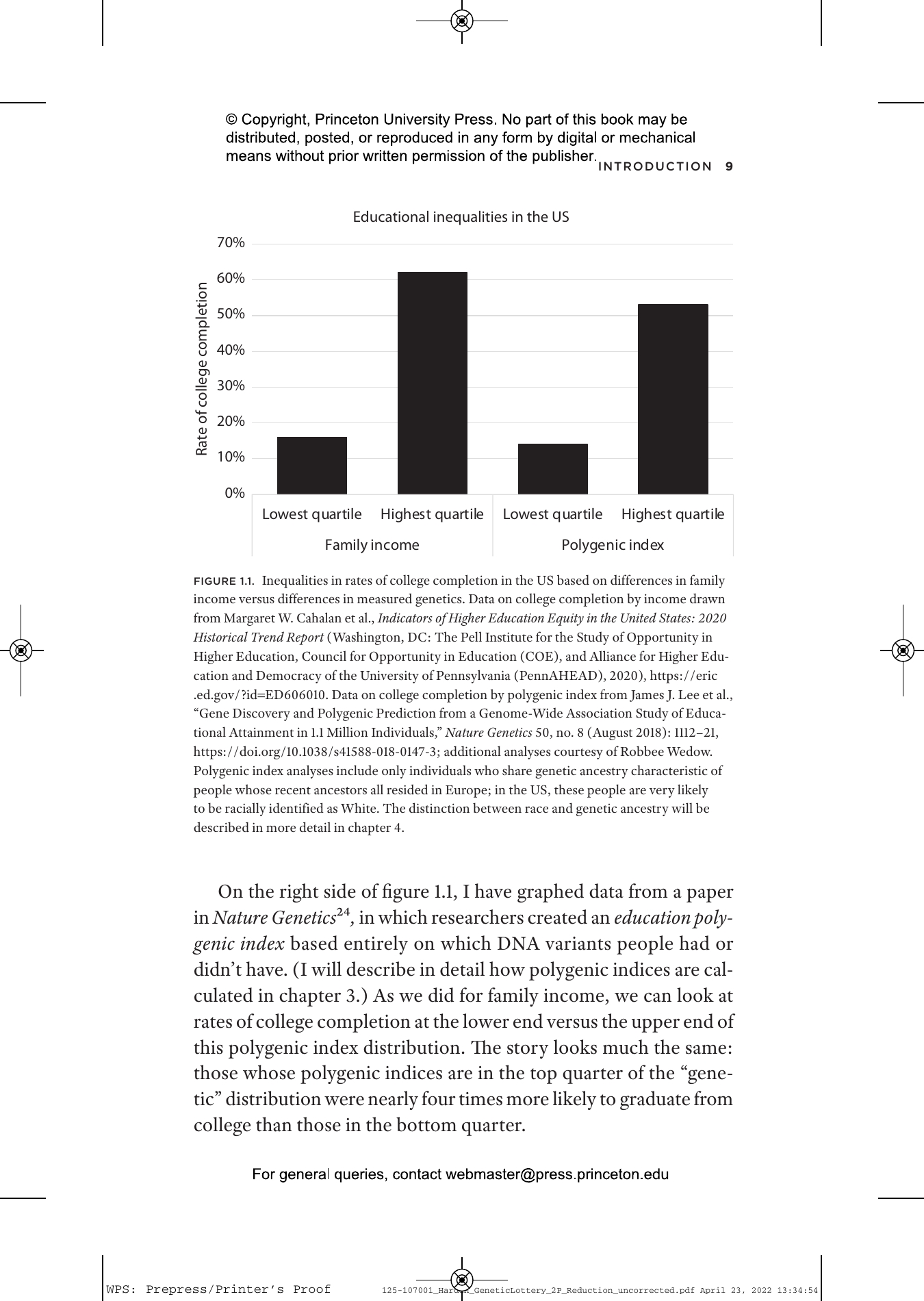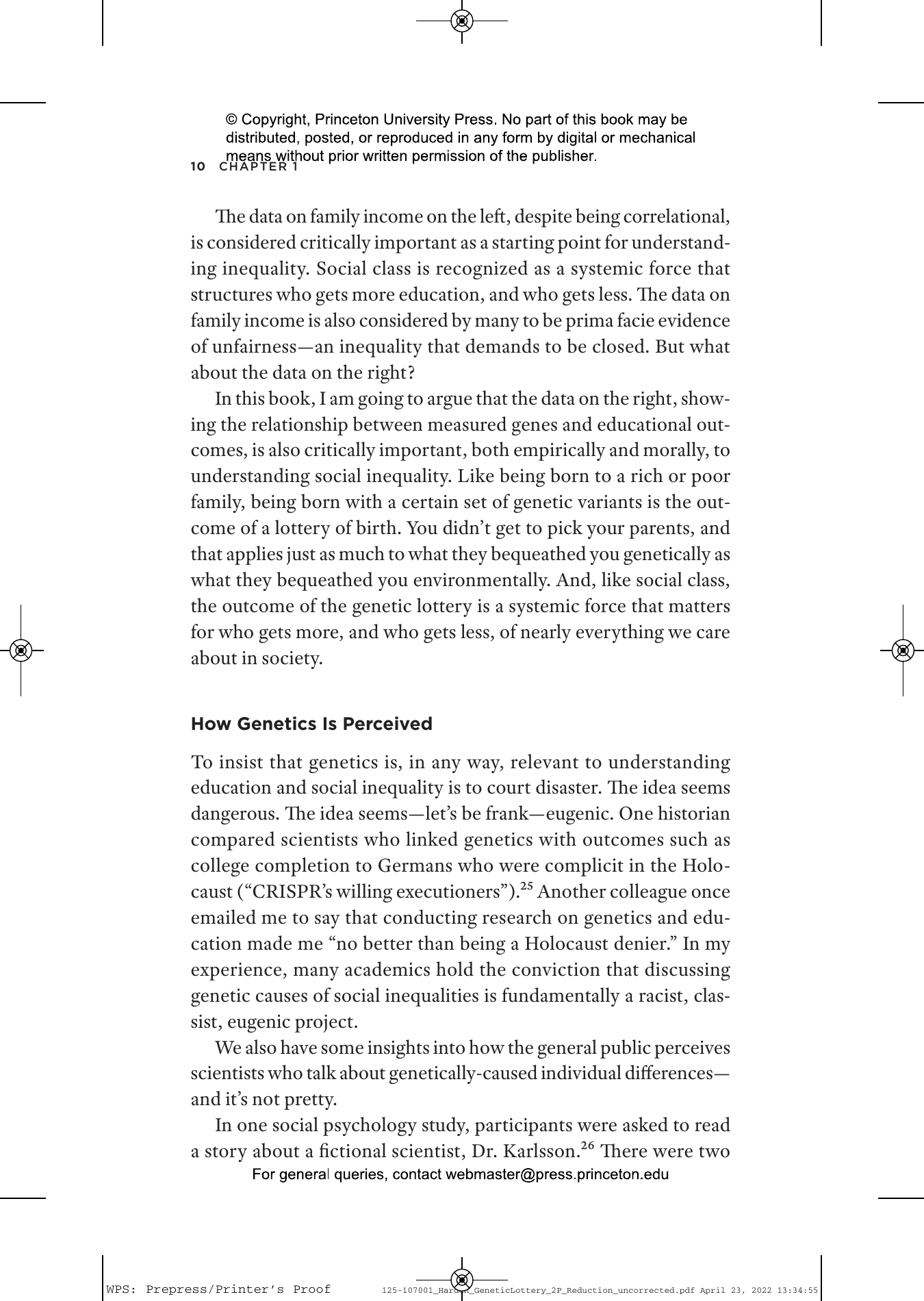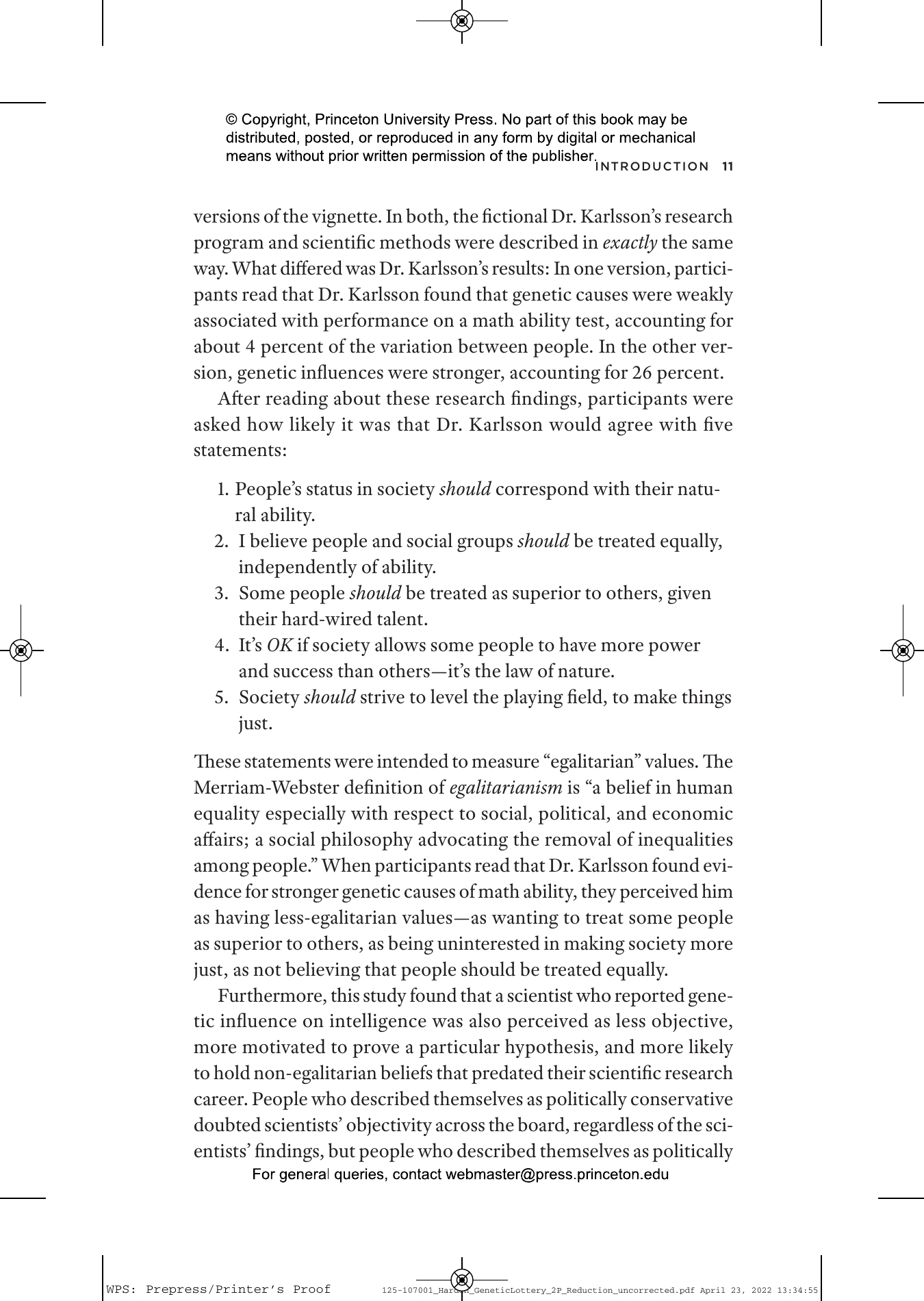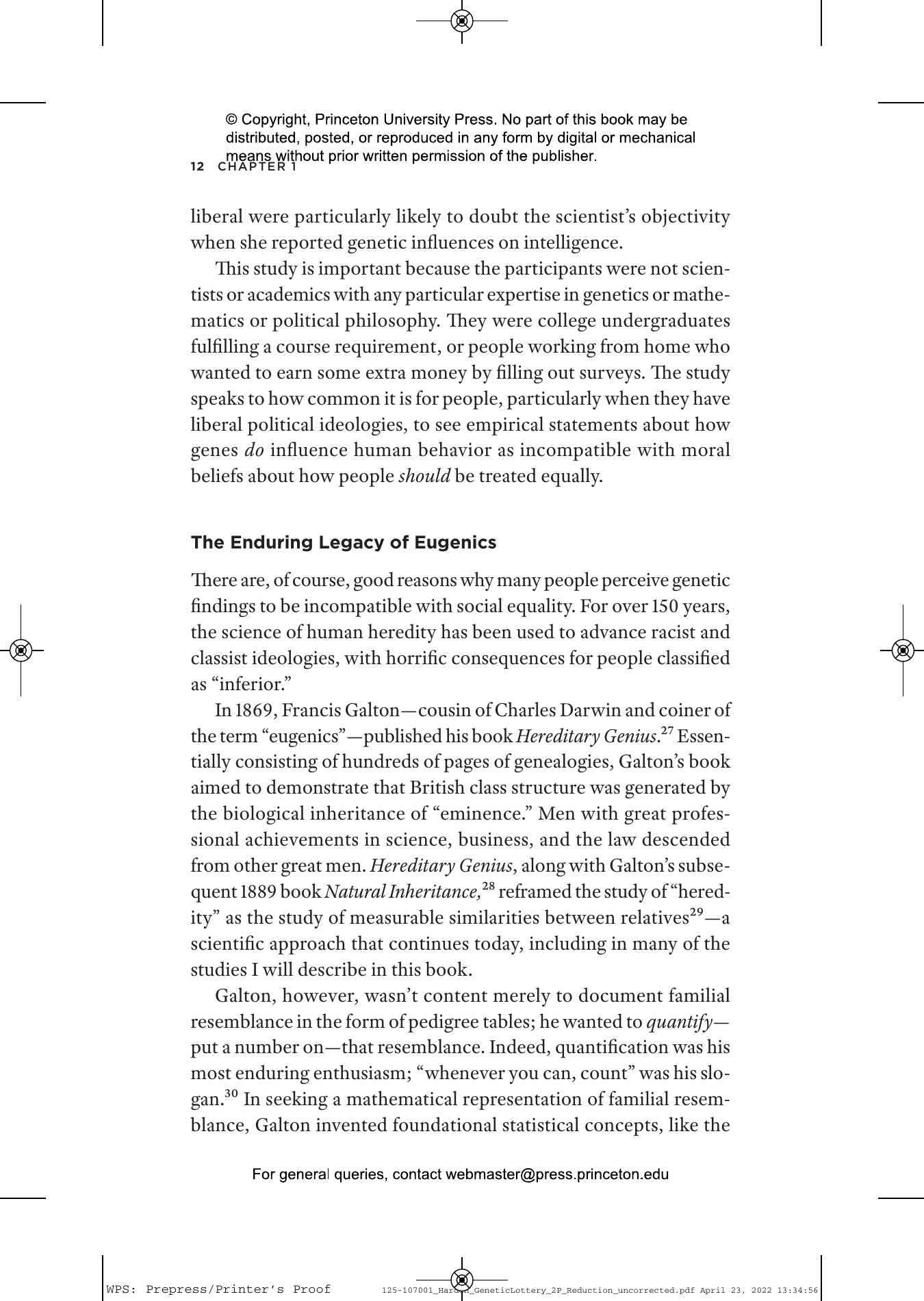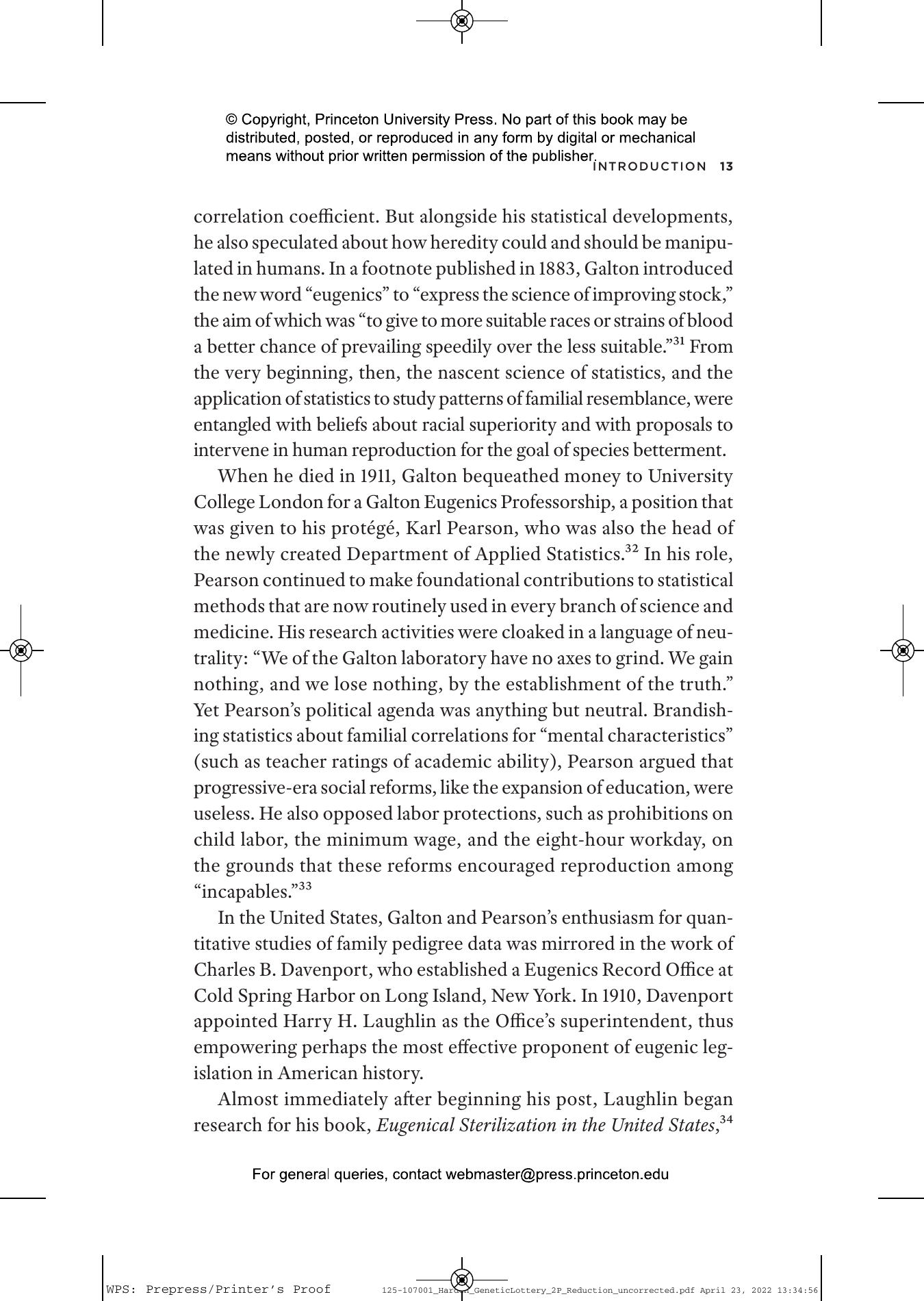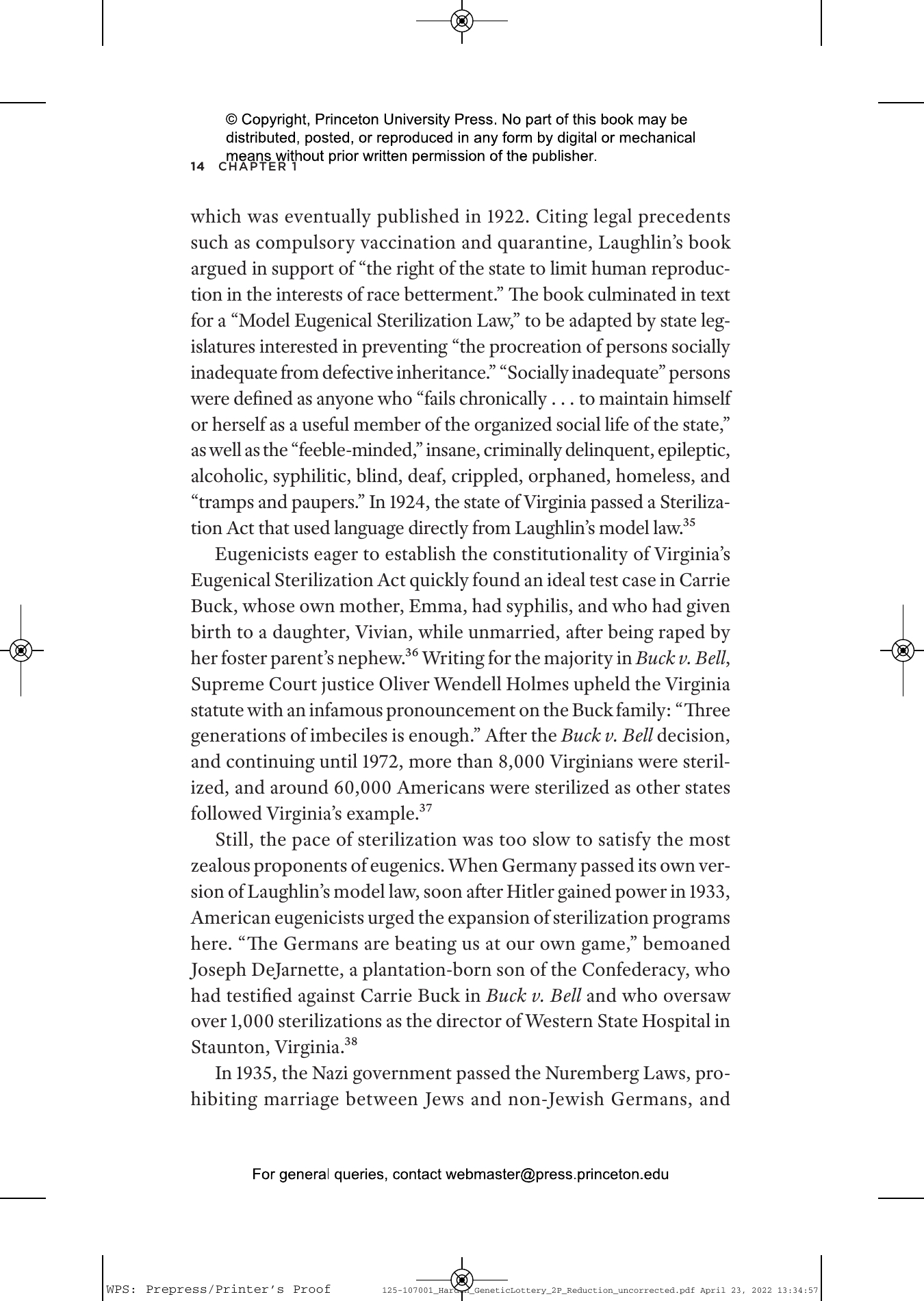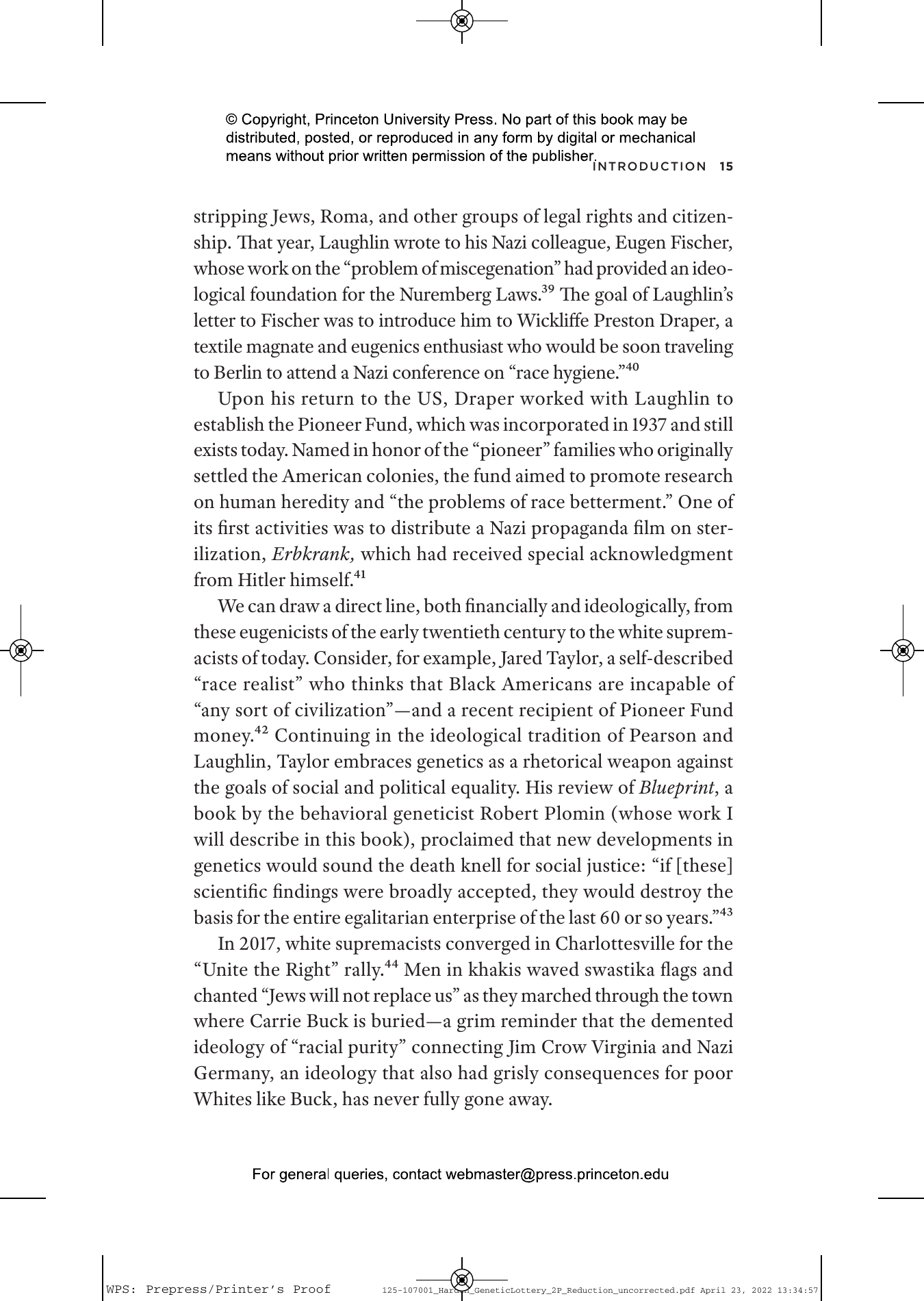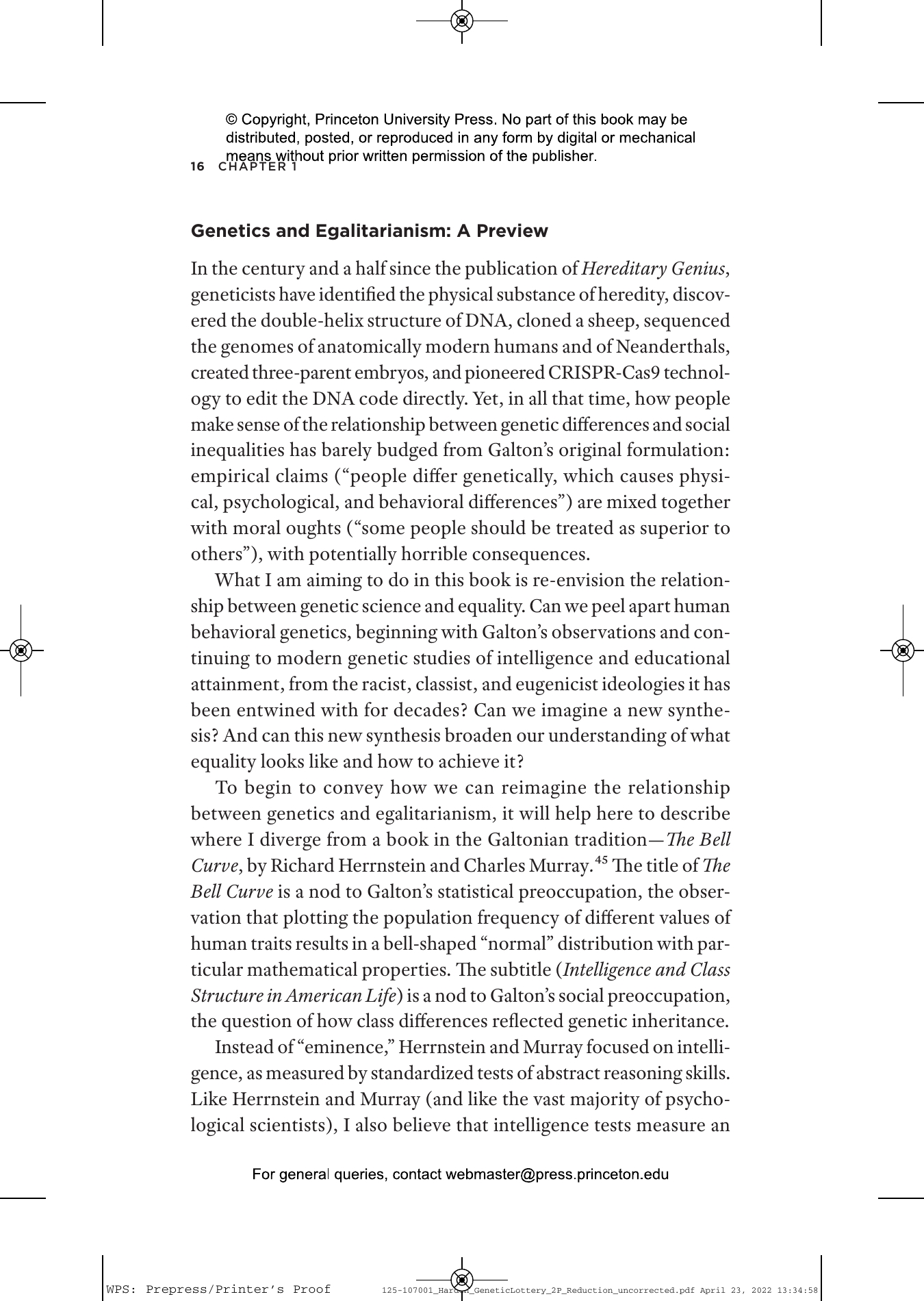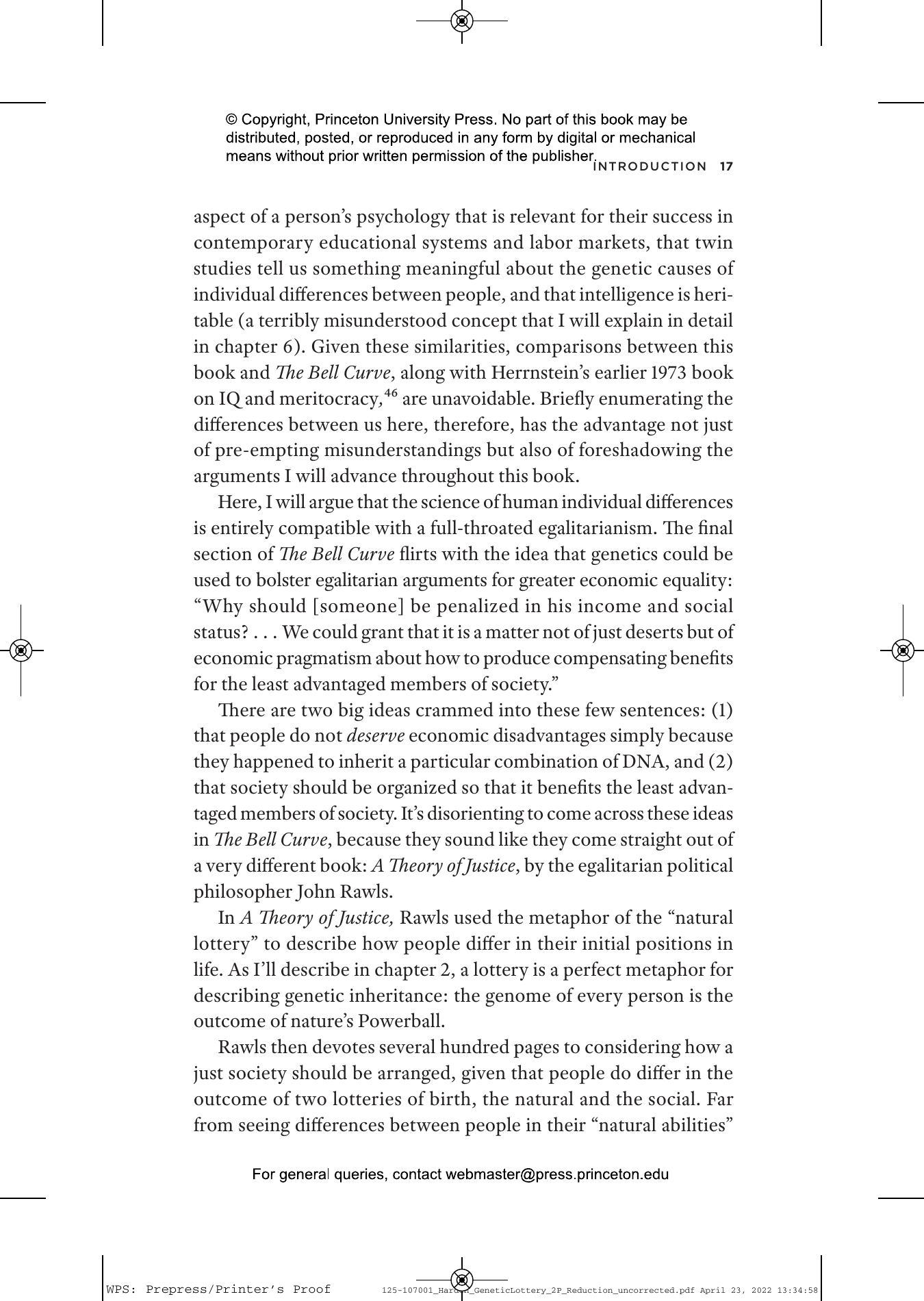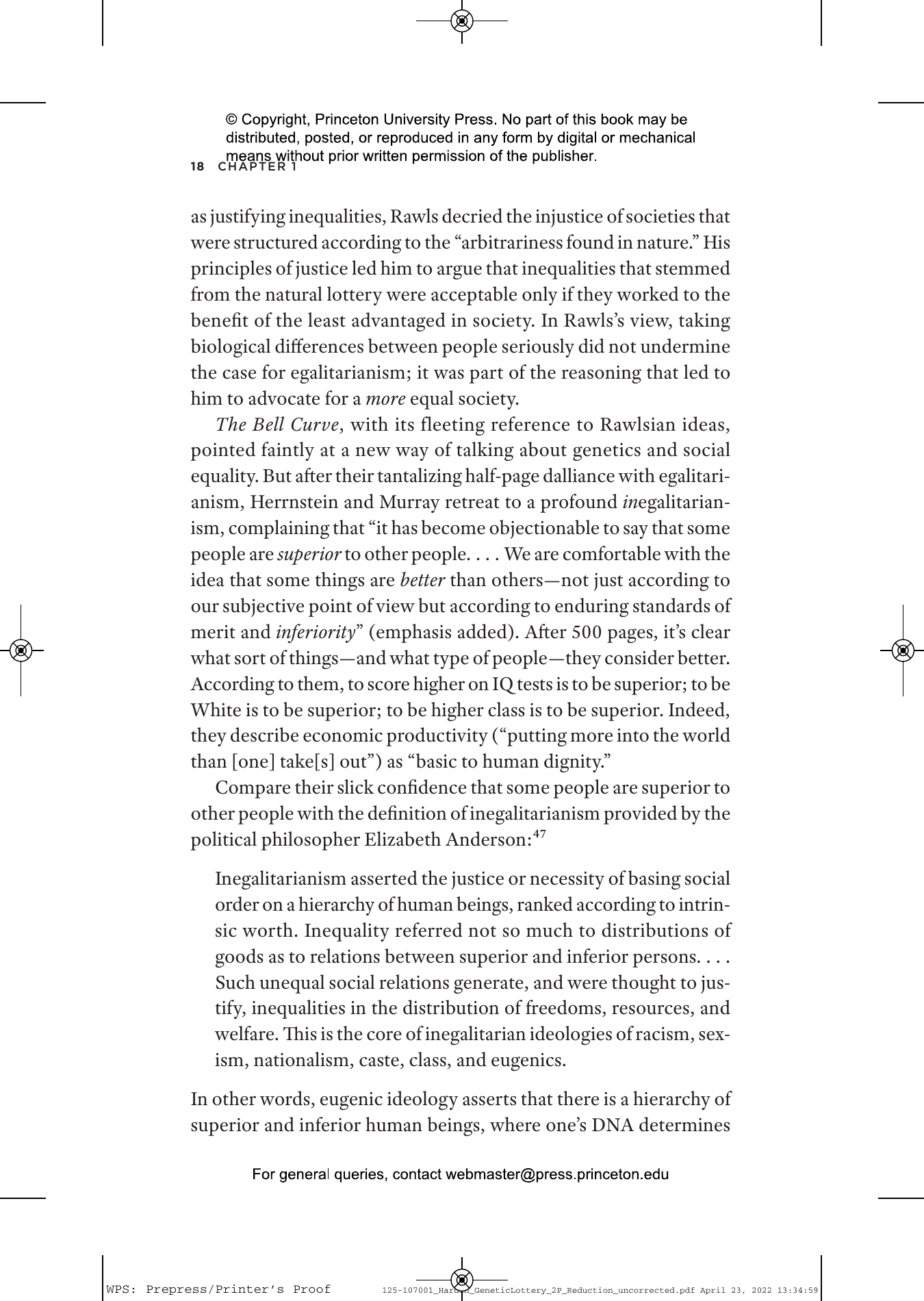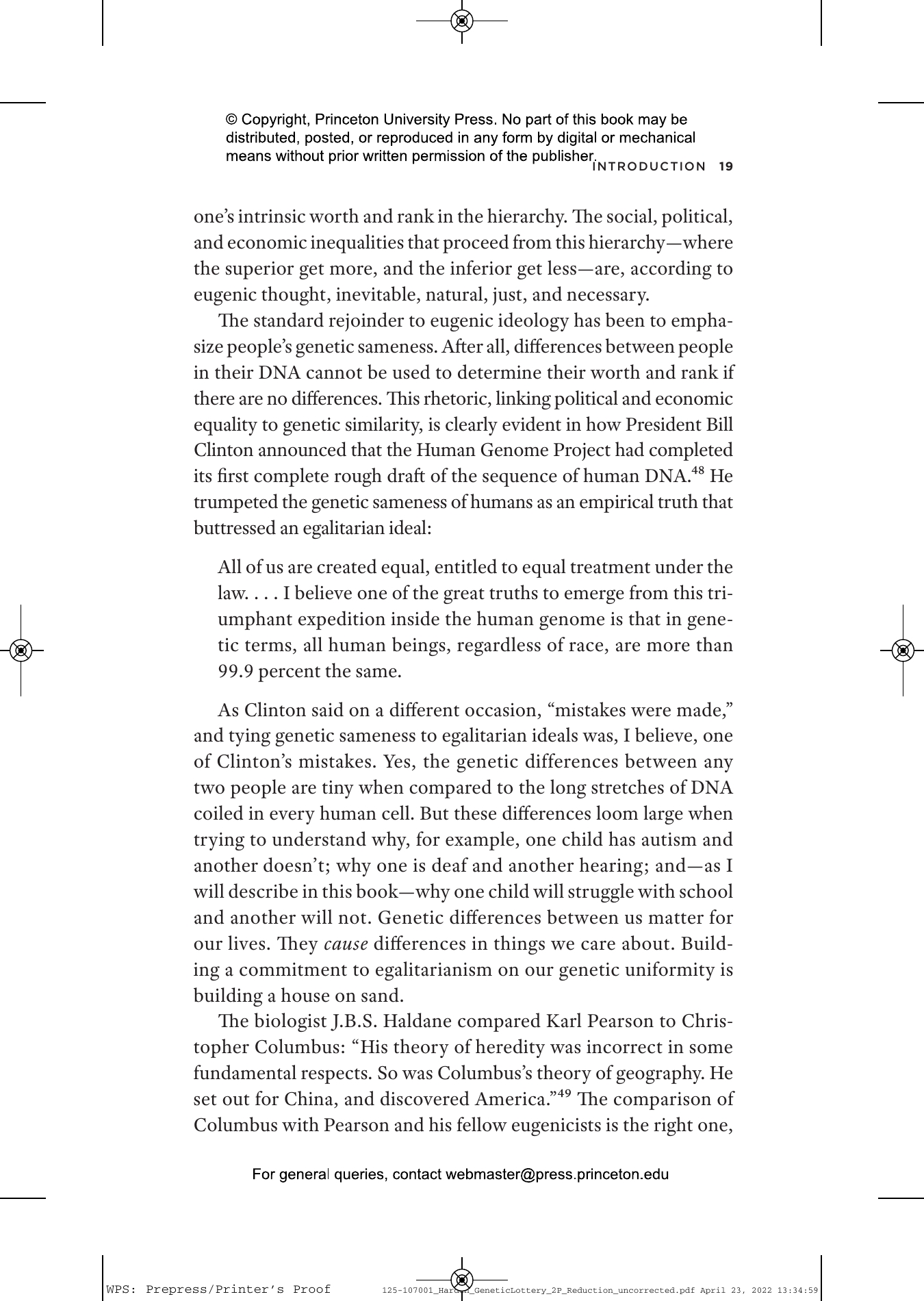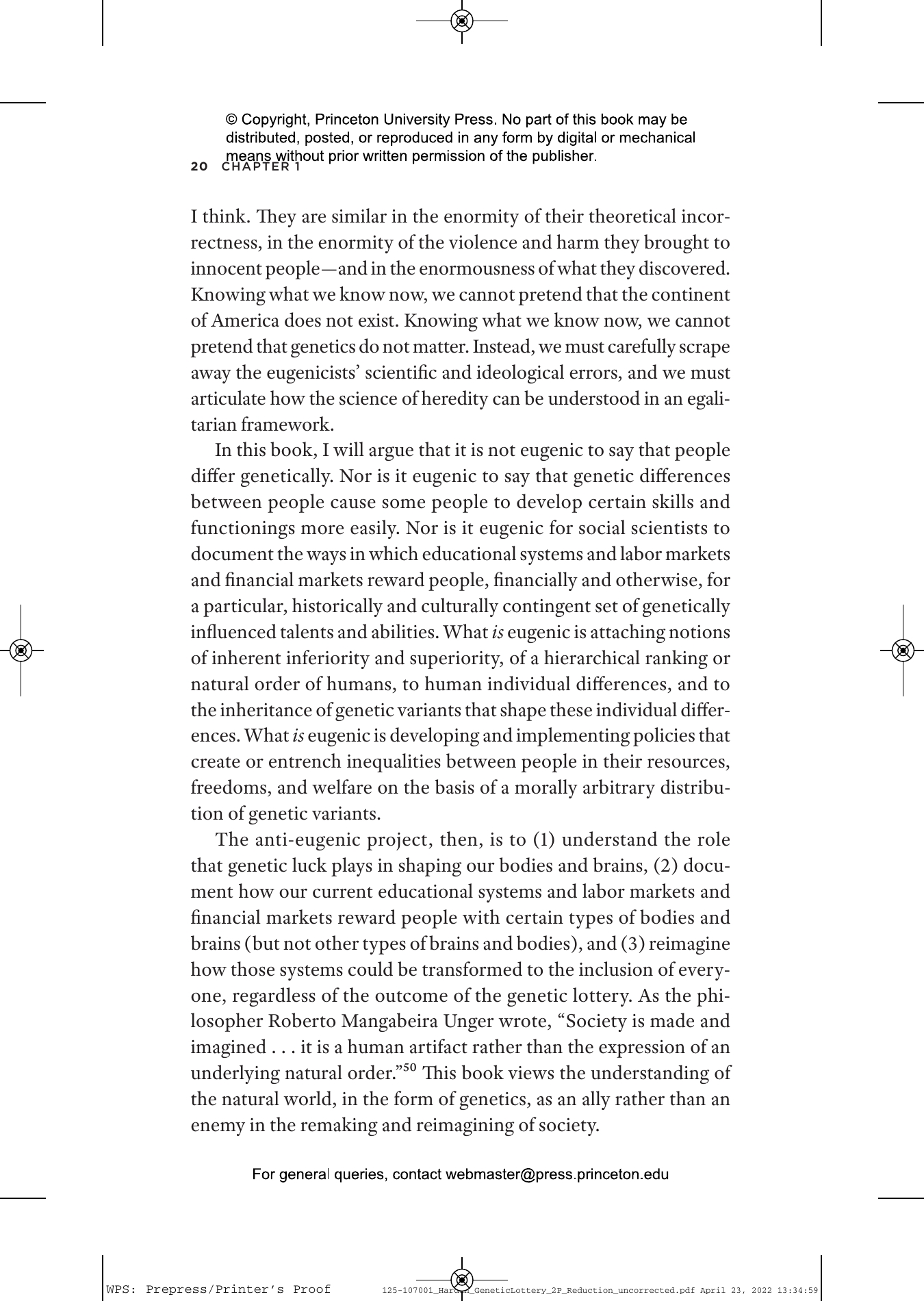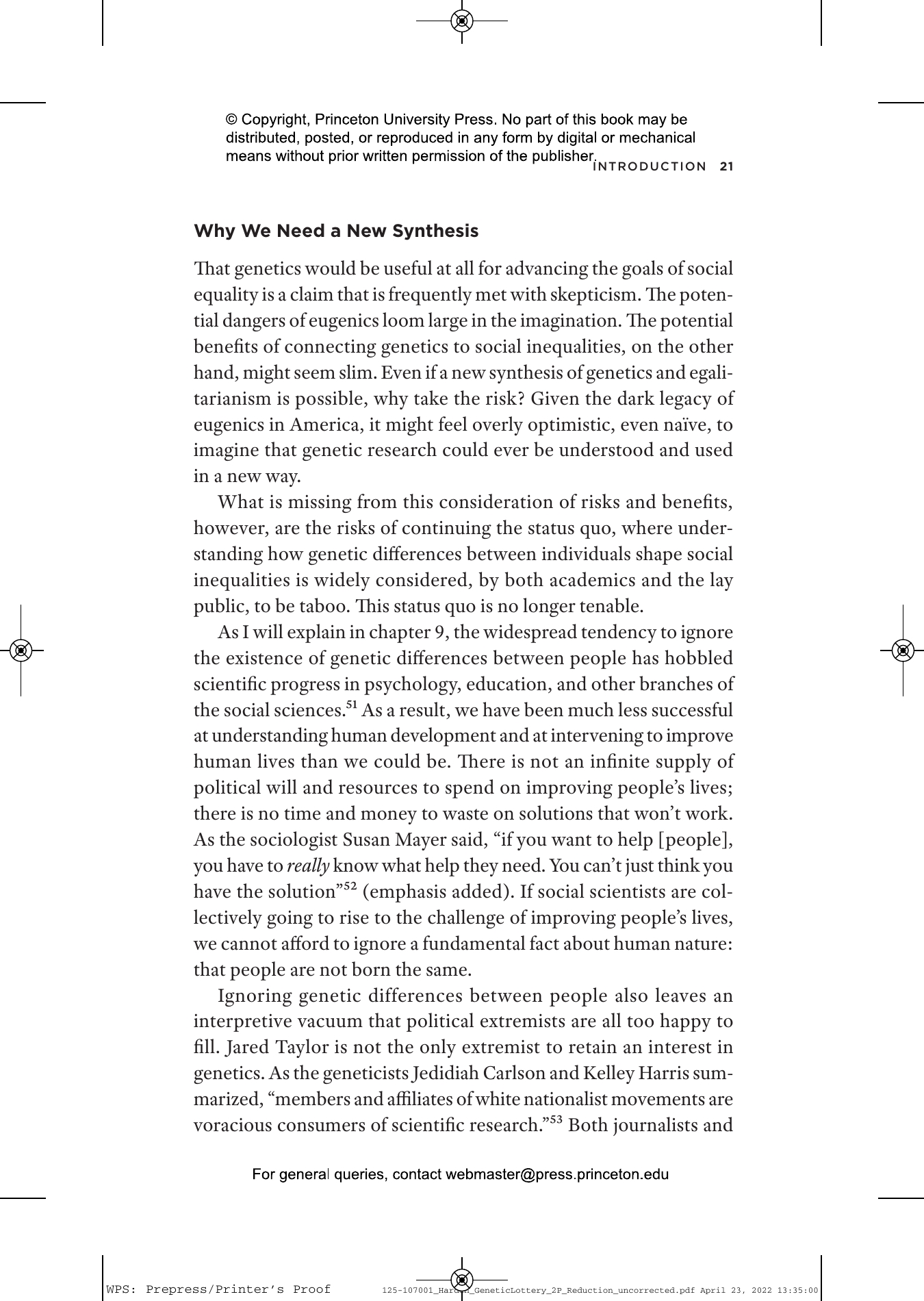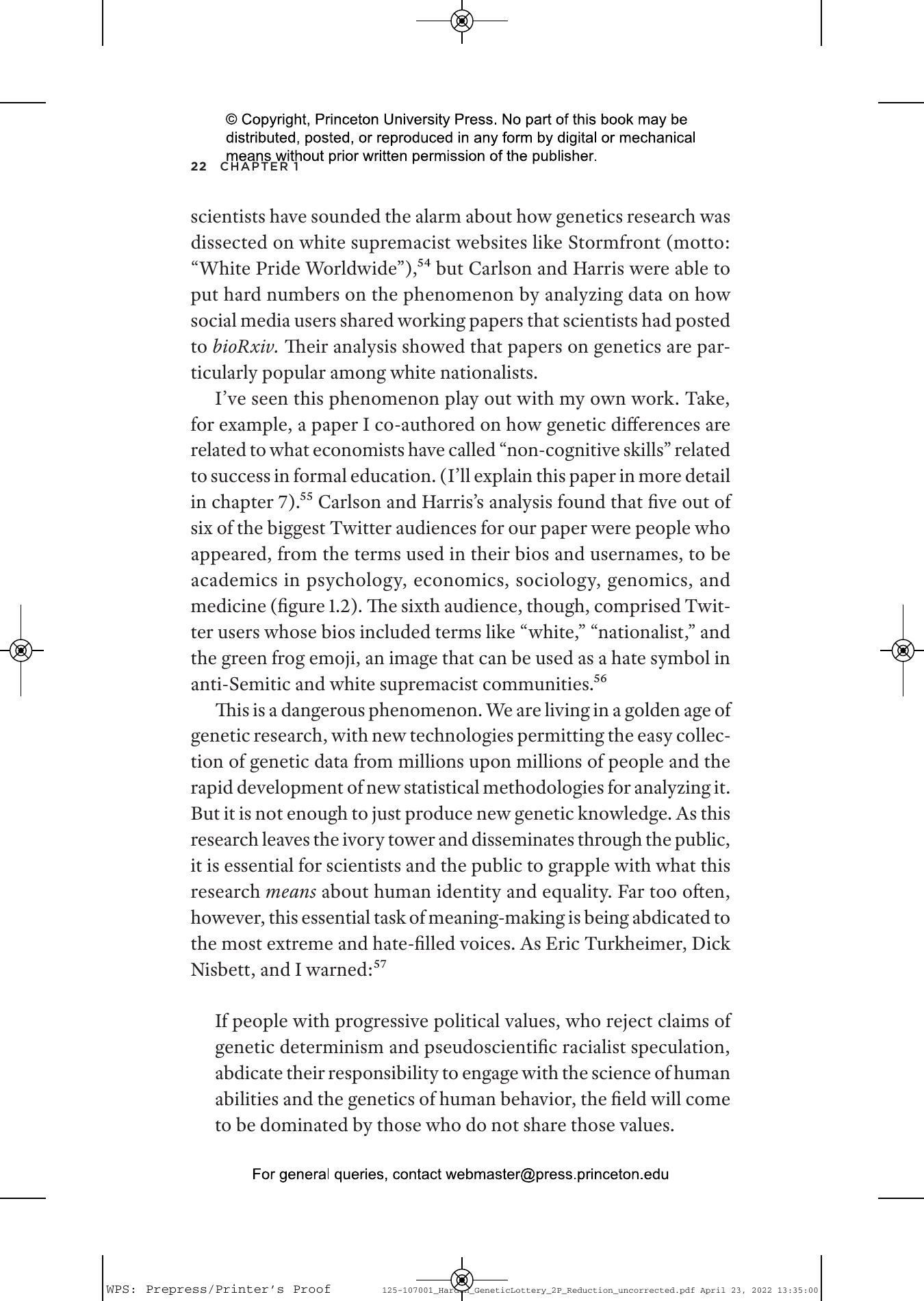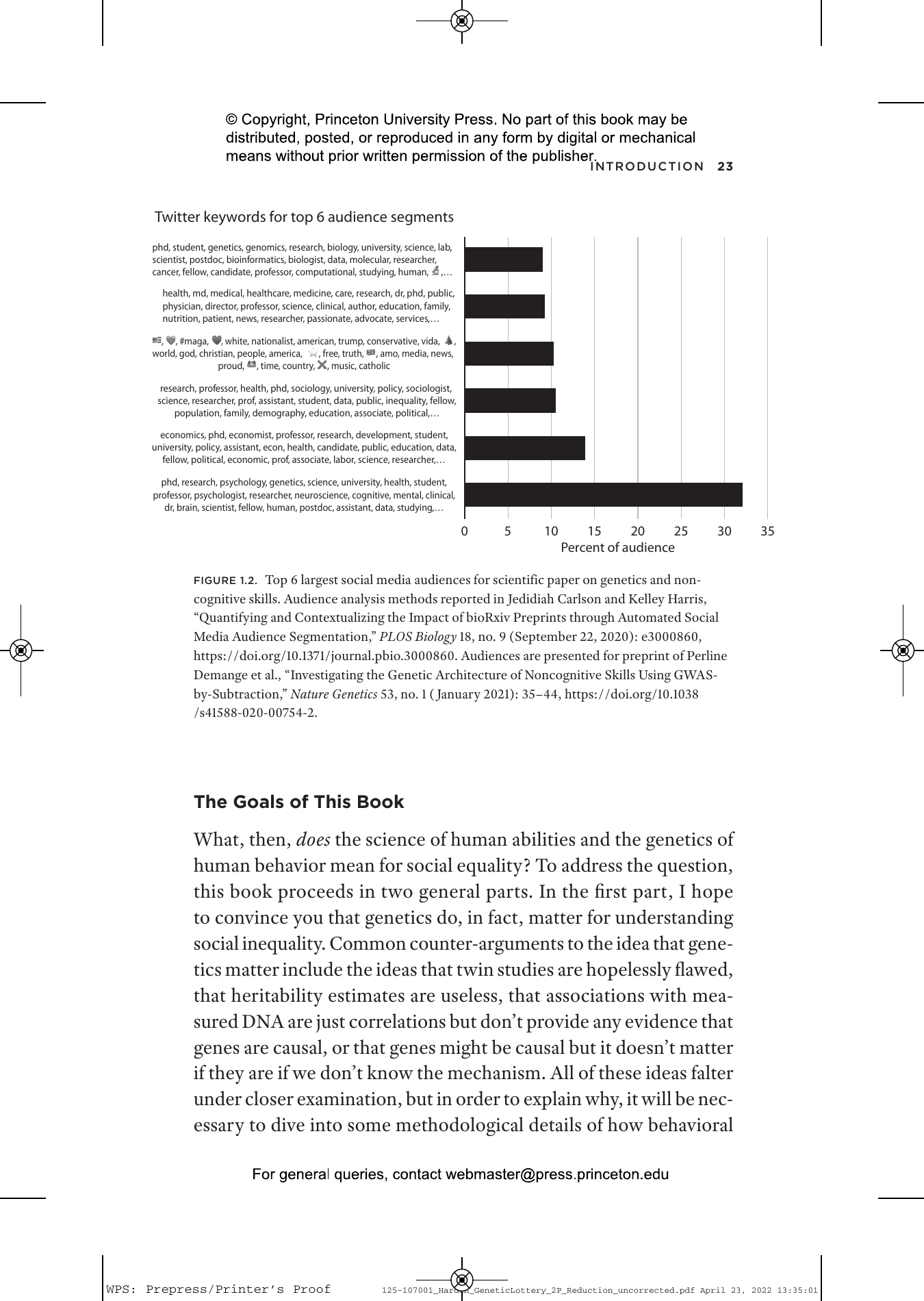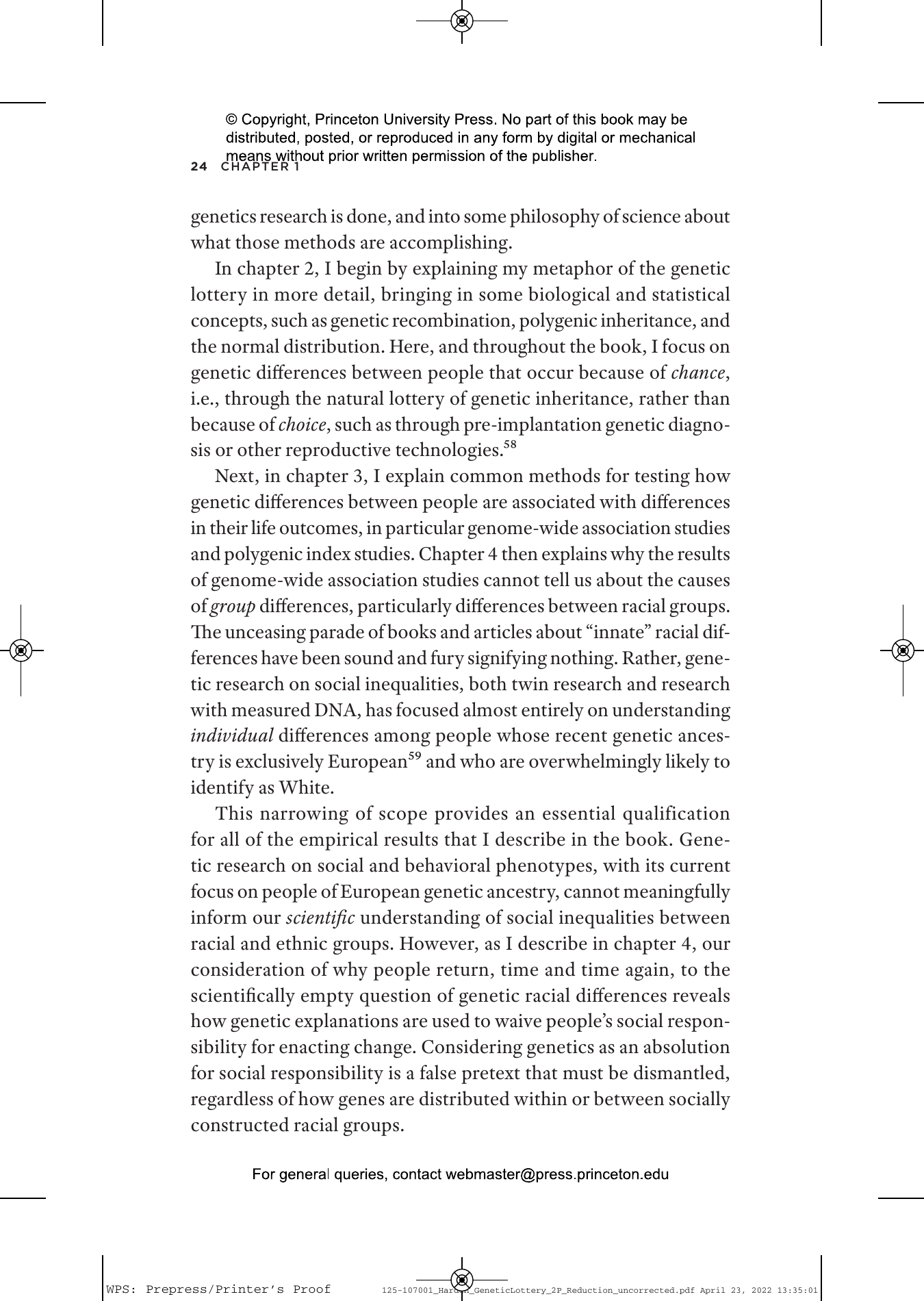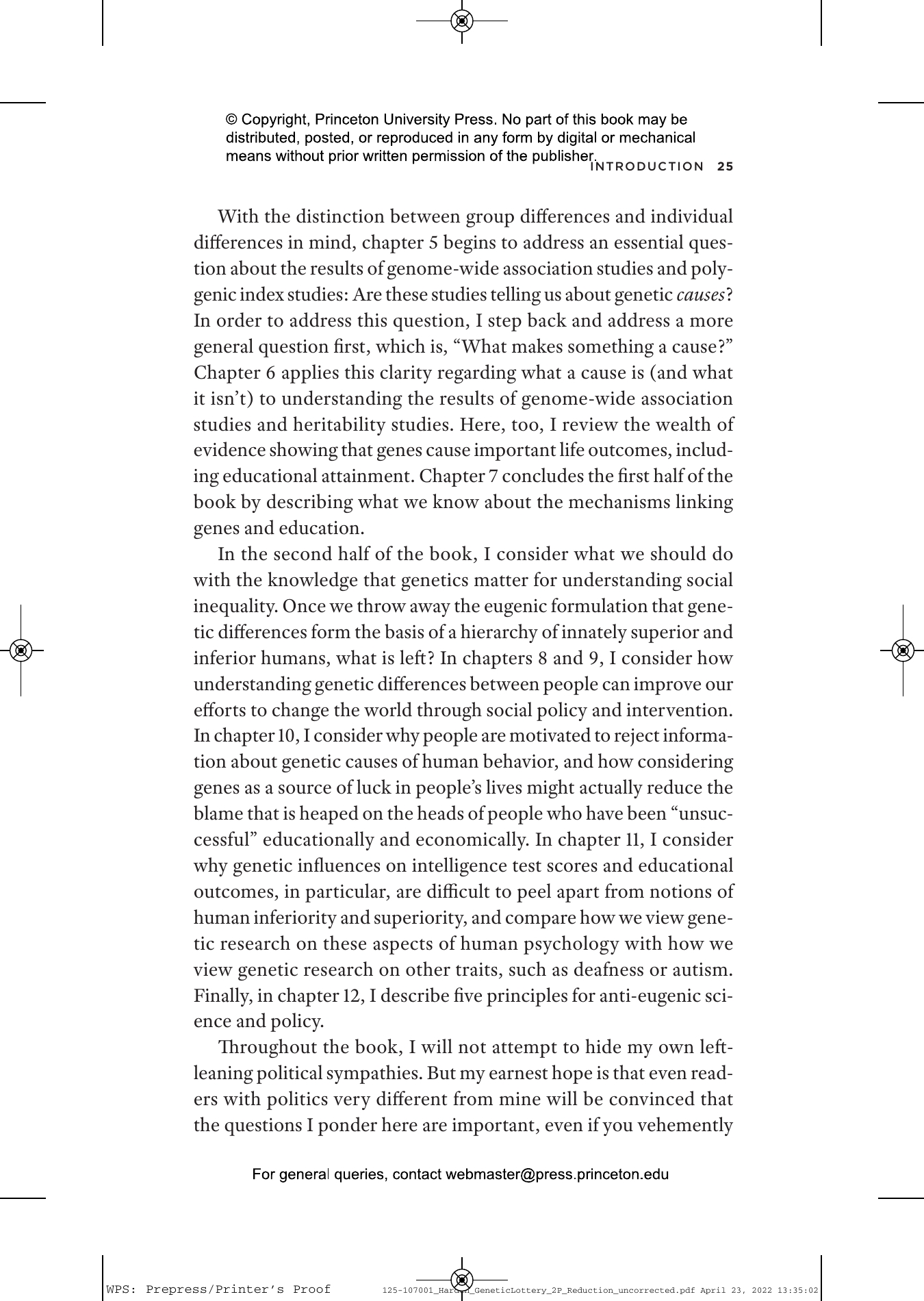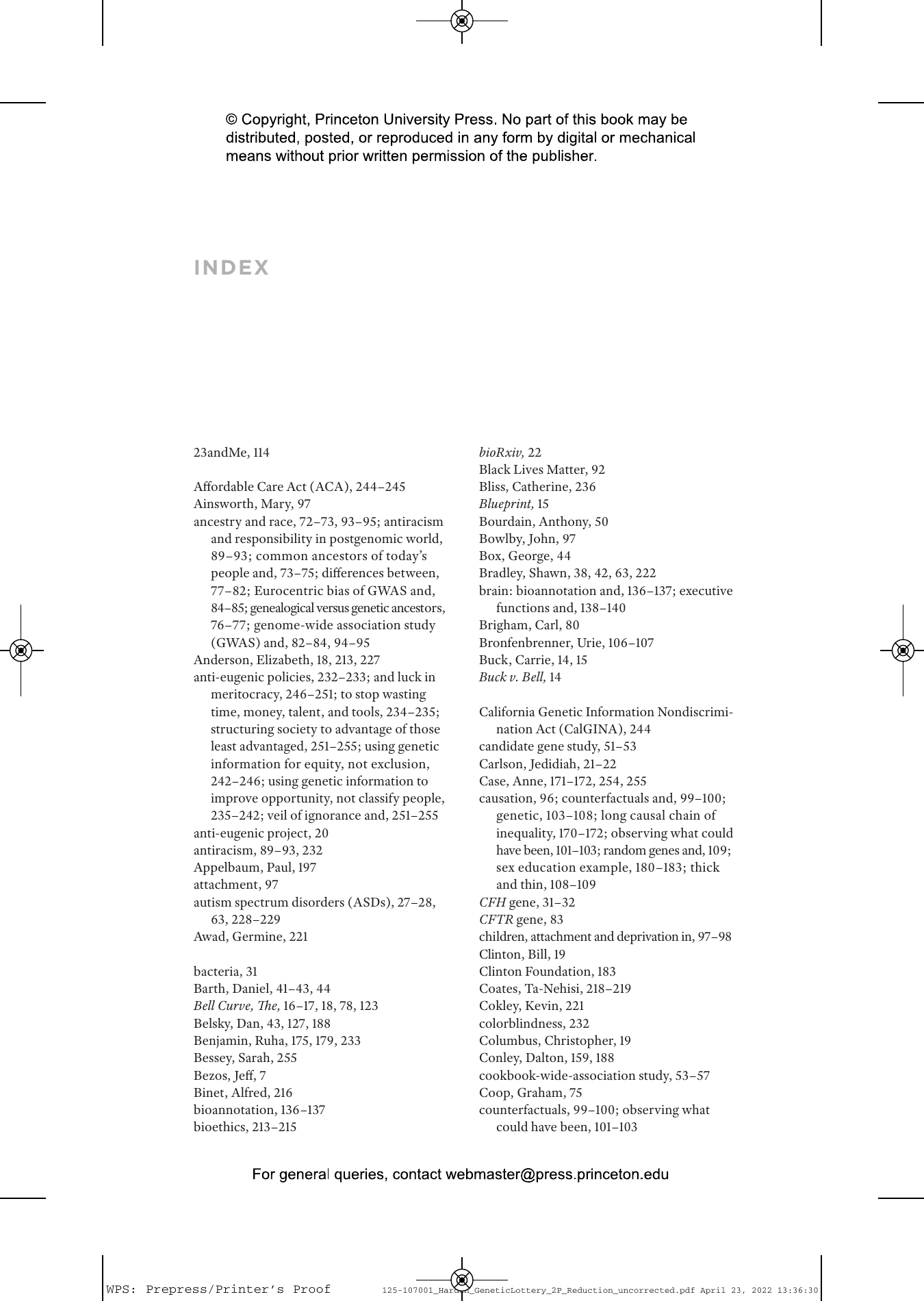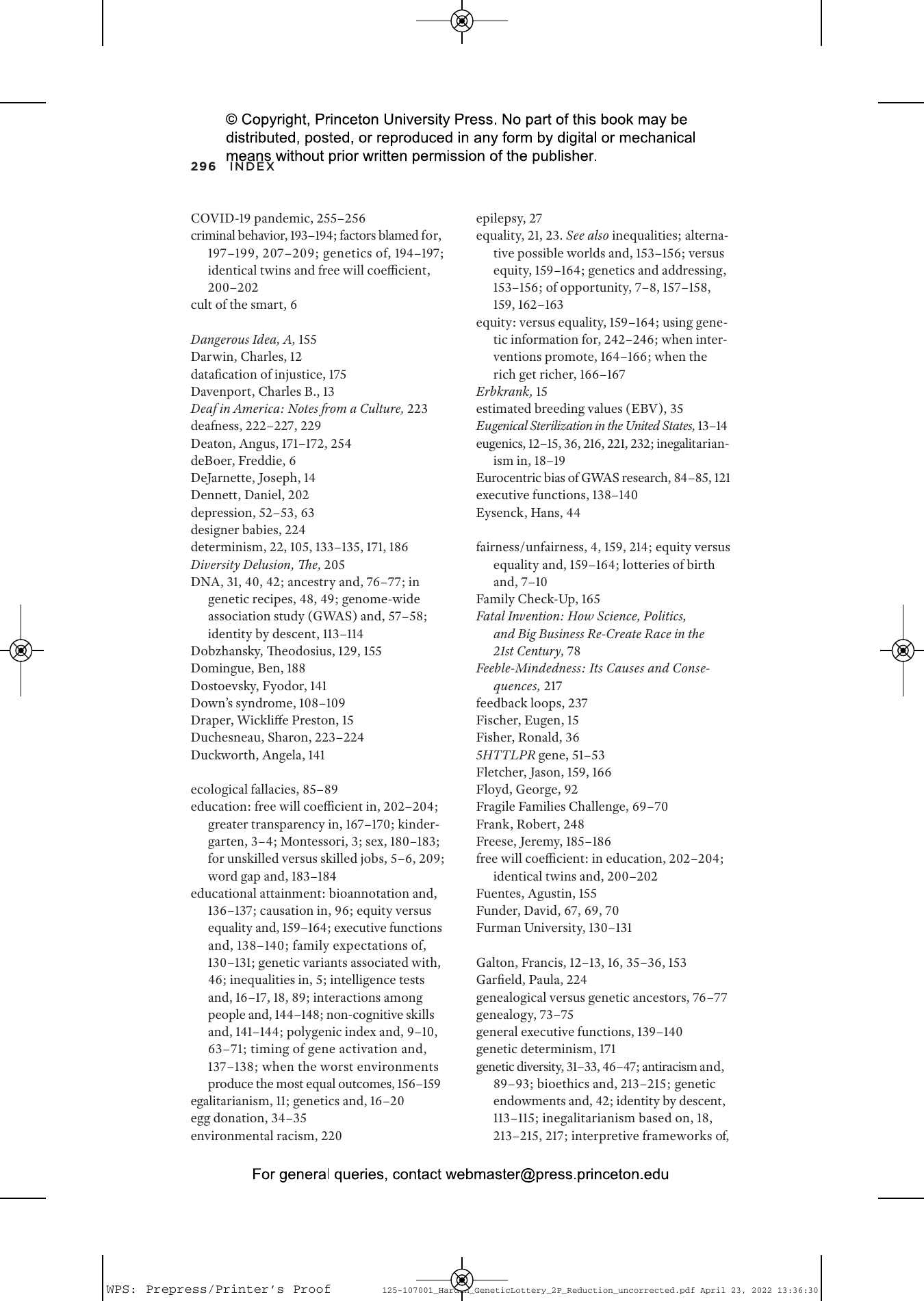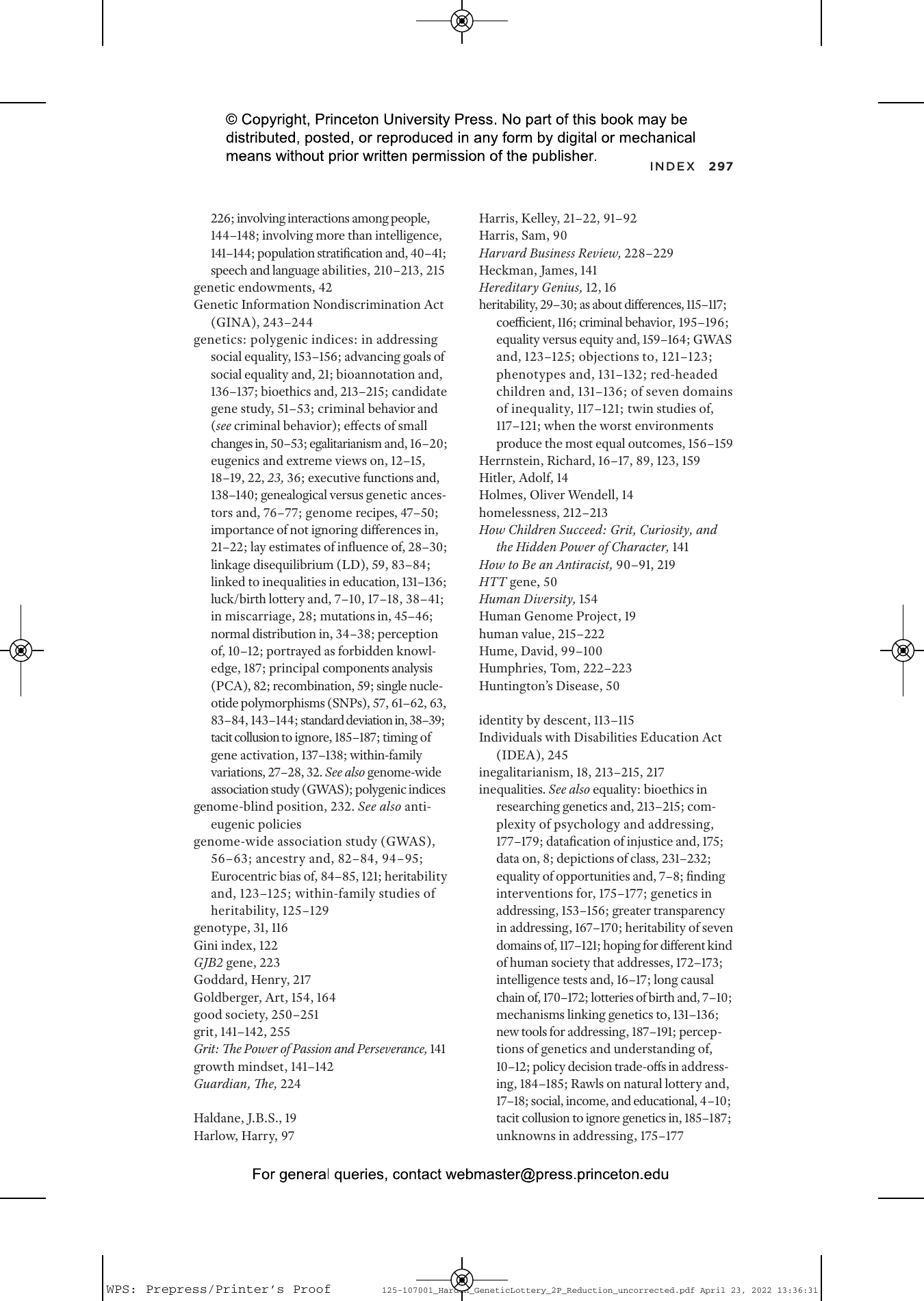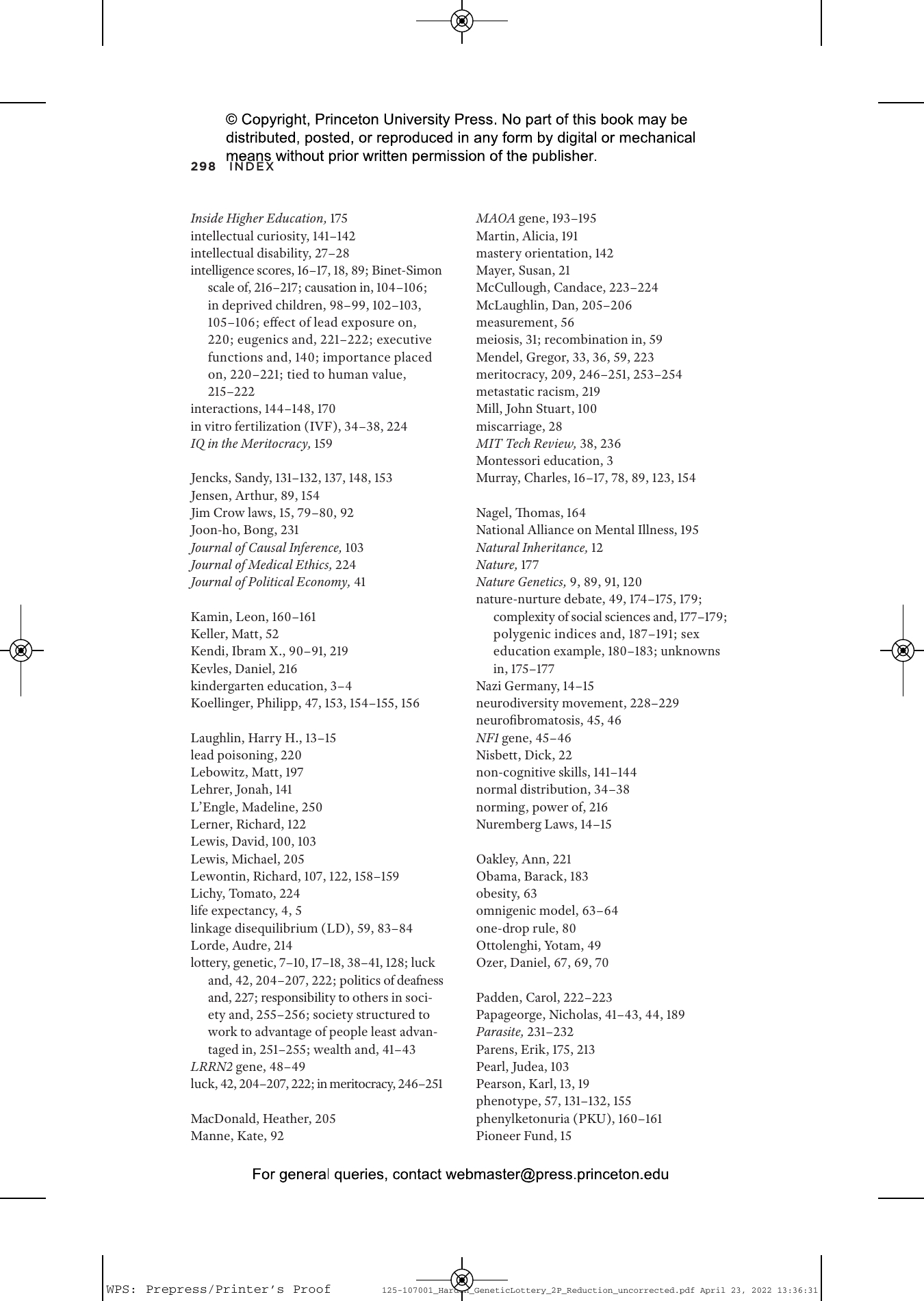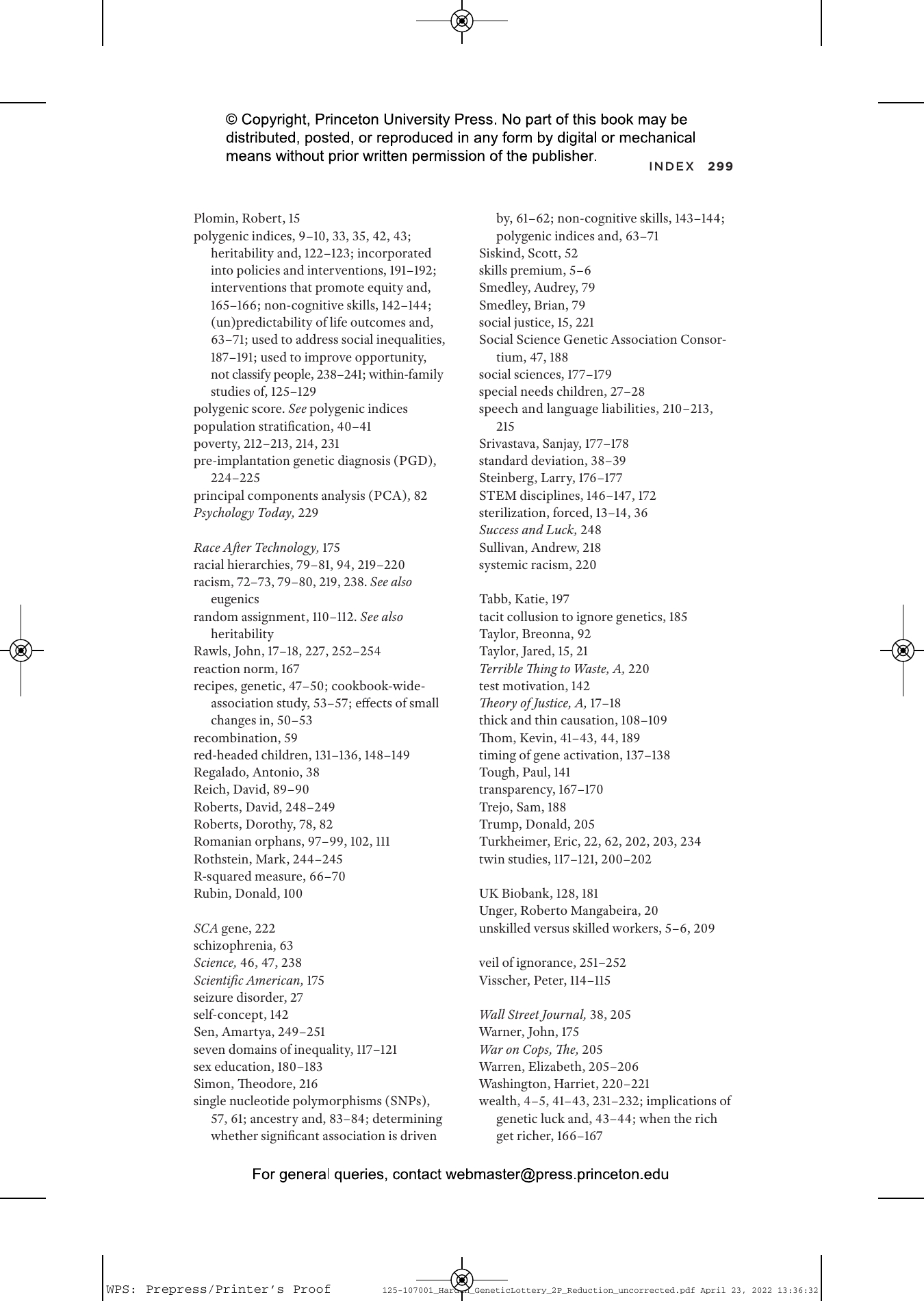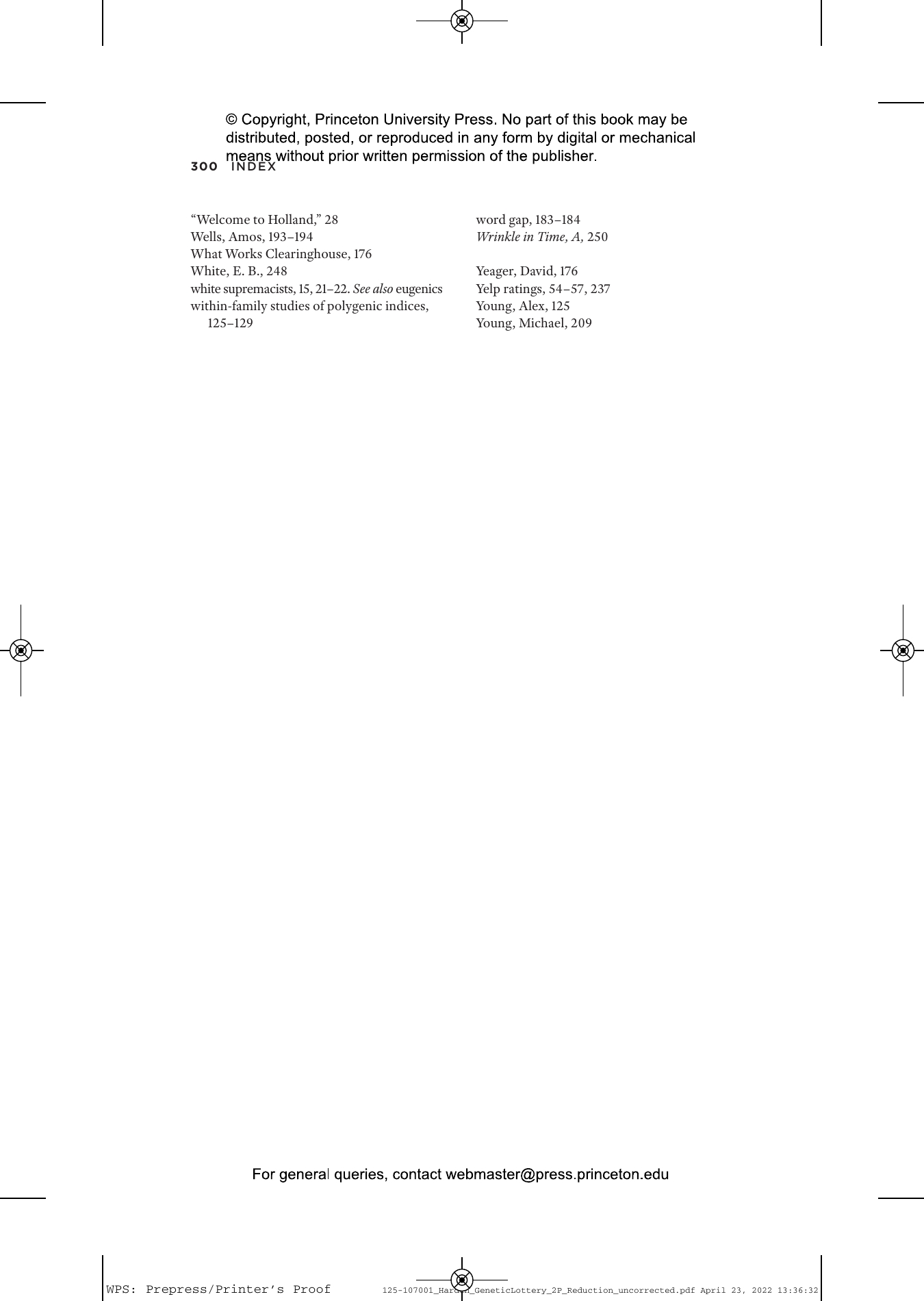"A thought-provoking read."—Jerry Coyne, Washington Post
"The ultimate claim of The Genetic Lottery is an extraordinarily ambitious act of moral entrepreneurialism. Harden argues that an appreciation of the role of simple genetic luck—alongside all the other arbitrary lotteries of birth—will make us, as a society, more inclined to ensure that everyone has the opportunity to enjoy lives of dignity and comfort."—Gideon Lewis-Kraus, The New Yorker
"A book that is closely argued and packed with compelling scientific and statistical evidence. . . . This is a fascinating and detailed discussion of how genetic and environmental factors are braided together in all of us, shaping our destinies for good or ill. Harden’s ideas challenge existing orthodoxies, and she is also aware that complex research such as this is often misused. But her passionate commitment to tackling inequality and changing society is not to be doubted."—P. D. Smith, The Guardian
"The Genetic Lottery is one of the most thought-provoking books I've read this year."—Dan Falk, CBC Radio
"The Genetic Lottery is a good read, peppered with relatable stories and examples. Harden pulls off the trick of simultaneously introducing a technical field to newcomers; addressing deep, specialist debates; and taking seriously the intersection of scientific and philosophical analyses of inequality."—Aaron Panofsky, Science
"Harden diligently fights a desperate battle to enlist science to serve progressive social reform."—Kirkus Reviews
"[An] outstanding new book. . . . It’s scientifically spot on, historically adroit, and excellently written. Required reading."—Adam Rutherford
"While acknowledging the roles our environment and experiences play in shaping our lives, Harden makes the case that social scientists who want to address the roots of inequality must reckon with genetics. . . . The more researchers understand about the myriad factors that influence how our lives turn out, the more they can help improve outcomes for everyone. Genetics is one of those factors, Harden argues: when we ignore it, the most vulnerable suffer."—Jennifer Latson, Texas Monthly
"A welcome resource for scholars and policy makers who want to advocate for and initiate equitable social changes with the help of reliable, expert knowledge."—J. F. Heberle, Choice
"An engagingly written and highly accessible account of how genes shape our lives. . . . [The Genetic Lottery] richly merits the widespread attention it has received."—Robert H. Frank, Administrative Science Quarterly
"[Harden] is a beautiful writer, weaving together personal narrative and complex technical concepts skillfully. Her writing is accessible to nonexperts, and the argument she makes—that it is both valuable and politically progressive for researchers of social outcomes to study DNA—is provocative. With this argument, The Genetic Lottery invites a necessary debate."—Daphne Oluwaseun Martschenko, Hastings Center Report
"One of the most impressive things about [The Genetic Lottery] is Harden’s crystal-clear exposition of complex scientific research and methods. This alone is a gift to the public and every scientist should be grateful to her for helping the public understand genomic research and causal inference."—Jonathan T. Rothwell, Rothwell's Newsletter
"Kathryn Paige Harden's The Genetic Lottery is both a novel contribution to this set and a novel kind of contribution, in that she does something much of the rest of this work does not: take a definite position on the political and social implications of behavioral genetics. . . . The book is a masterly tour of the state of the art of behavioral genetics and its relevance for pressing social questions."—Bryan Cwik, Bioethics
"In creating a new synthesis that neither ignores the role of genetics nor misappropriates it, Harden acknowledges the importance the genetic lottery plays in shaping our life outcomes, while cautioning against misinterpreting the genetically laden differences among people as implying inborn, societal superiority. Harden examines the nascent field of behavioral genetics in an intellectually humble way, by detailing in lay terms the science of genetics and its applicability to differential life outcomes among people, and by incorporating this knowledge to advance social policies and social considerations that limit inequities."—Mark Rapala, International Social Science Review
"Harden has illuminated a path forward free of racial bias and 'superior-inferior' dichotomies to build on seeking applications for greater social equality."—E. B. Boatner, Lavender Magazine
"Kathryn Paige Harden has been waging a noble battle to liberate genetic science from its reactionary connotations, and especially the foul practice of eugenics. Her point, pithily made in this important book, is that knowledge of genetics is essential to any progressive politics and can be harnessed to advance the cause of equality."—Matt d’Ancona, Tortoise
“This brilliant book is without a doubt the very best exposition on our genes, how they influence quite literally everything about us, and why this means we should care more, not less, about the societal structures in which we live.”—Angela Duckworth, author of Grit
“To me, the aim of genetic research should be threefold: to find out which differences between people are real, which of those matter, and how to use that knowledge to get the best outcomes for all people. This fascinating book is a step toward that goal.”—David Epstein, author of Range
“Harden expertly explains what we can—and importantly, can’t—take away from genetic research, and does so without shying away from the complexities or controversies. Nobody should be allowed to opine about genetics in public until they’ve read this book.”—Stuart Ritchie, author of Science Fictions
“A thoughtful, brave, and very engaging book. In contrast both to those who see genetic differences as justifying hierarchy and to those who reject the study of the influence of genes on social stratification, Harden argues that understanding the findings of behavioral genetics is essential if we are to create a more just society.”—Peter Singer, Princeton University
“The Genetic Lottery is a must-read for anyone who cares about understanding why humans differ from one another. Harden lights a clear path toward an anti-eugenic genetics that embraces human diversity and works toward equity for all humans.”—Russell A. Poldrack, author of Hard to Break
“Compelling and highly readable. Harden dispels the myths that genes are destiny, that their influence is all-or-none, and that those who work on genetics are eugenicists. She makes a persuasive case that if we understand genes this can help us work towards a fairer society.”—Dorothy Bishop, University of Oxford
“Harden skillfully integrates genetic research and social science to address inequality. She demonstrates that empirical advances in understanding the role of biology and social influence in life outcomes can productively inform our moral debates and public policy decisions, if only we can forthrightly address the blinkered generalizations of the past.”—Matt Grossmann, author of How Social Science Got Better
“In this thoughtful, important, and fascinating book, Harden presents a new synthesis of genetics and egalitarianism, showing how an appreciation of the power of genes is essential for moving us towards a good and just society. The Genetic Lottery is going to have a major impact on how everyone thinks about luck, merit, and human nature.”—Paul Bloom, Brooks and Suzanne Ragen Professor of Psychology, Yale University, author of The Sweet Spot: The Pleasures of Suffering and the Search for Meaning
